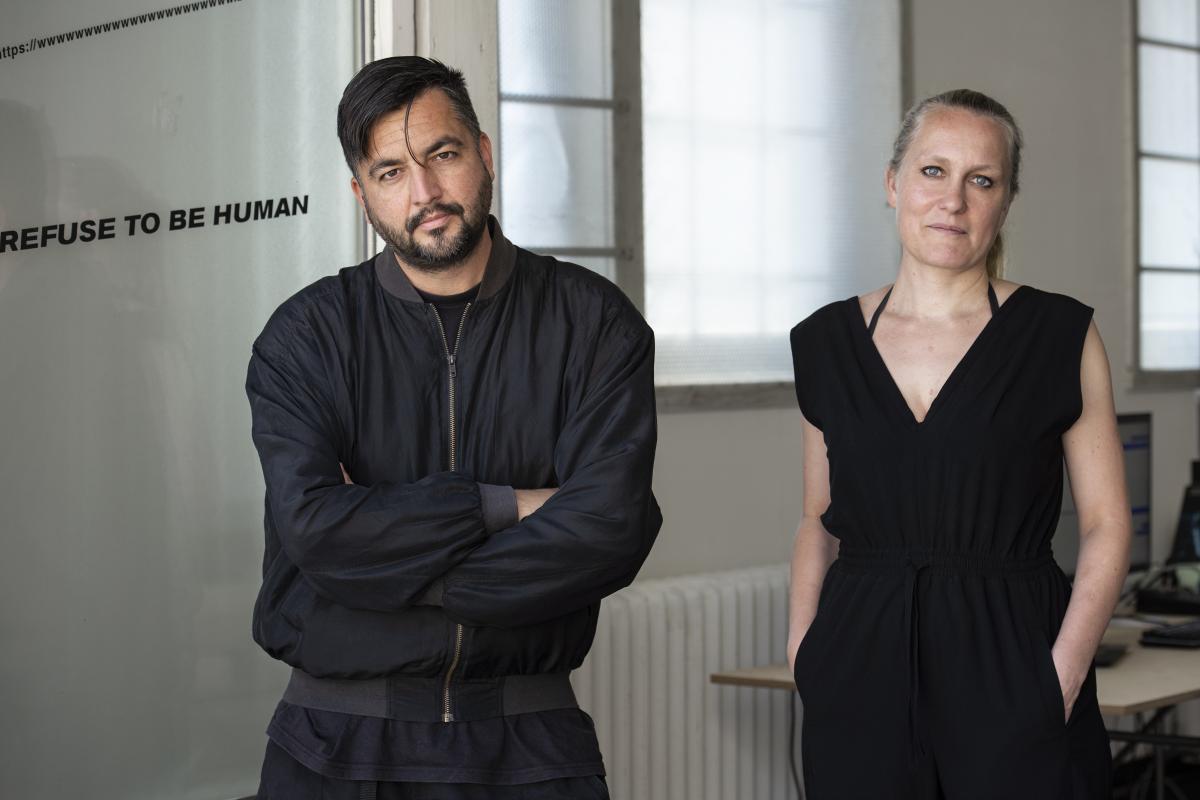
!Mediengruppe Bitnik (read – the not mediengruppe bitnik) live and work in Berlin. They are contemporary artists who work on and with the Internet. Their practice expands from the digital to affect physical spaces, often intentionally employing loss of control to challenge established structures and mechanisms. The works of !Mediengruppe Bitnik formulate fundamental questions concerning contemporary issues. !Mediengruppe Bitnik are the artists Carmen Weisskopf and Domagoj Smoljo.
Contact
Mail us connect@bitnik.org. Find us also on mastodon, twitter & instagram. We are co-running the mastodon instance tldr.nettime.org. Join us there!
Subscribe to our Newsletter
Upcoming & Ongoing
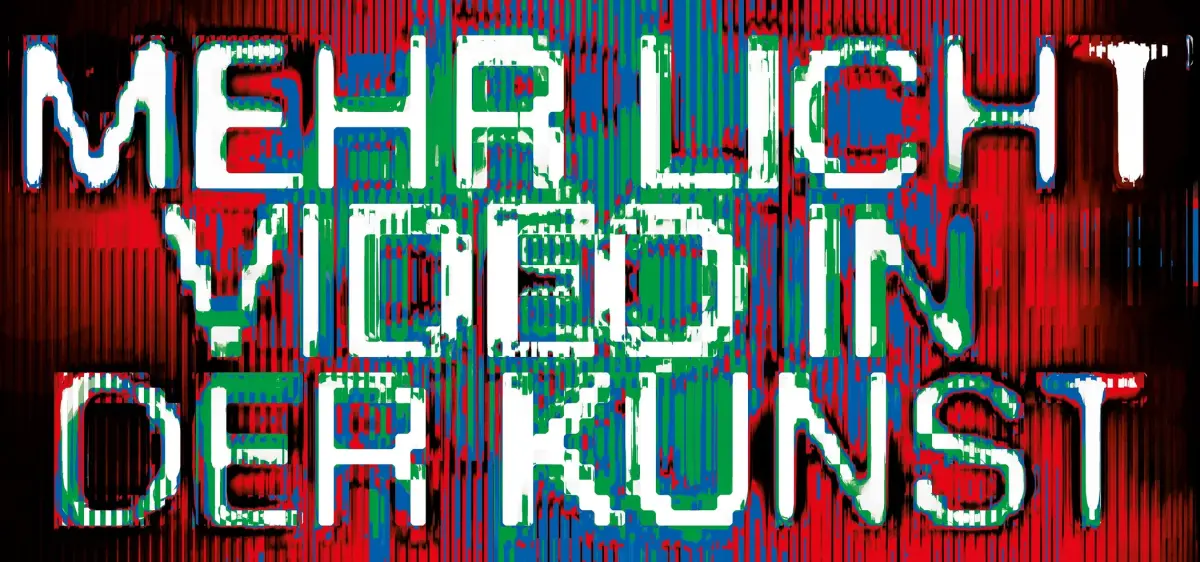
Das bewegte Bild ist allgegenwärtig – auf unseren Bildschirmen, in den sozialen Medien, auf der Strasse. Was einst auf flimmernden Röhrenbildschirmen begann, hat sich zu einer der spannendsten Ausdrucksformen zeitgenössischer Kunst entwickelt: Videokunst sprengt Grenzen, spielt mit Wahrnehmungen, erzählt Geschichten – mal poetisch, mal radikal. Die zwei komplementären Ausstellungen im Aargauer Kunsthaus und im Kunstmuseum Solothurn zeigen, welche Spuren die Videokunst in der Schweiz und in den beiden Häusern hinterlassen hat. Die Ausstellungen vereinen Leihgaben aus öffentlichen wie privaten Sammlungen, schliessen Neuproduktionen mit ein und werden ergänzt durch eigene Sammlungsbestände, in denen sich zentrale Werke der Videokunst befinden.
The moving image is ubiquitous – on our screens, on social media, on the street. What once began on flickering tube screens has become one of the most exciting expressions of contemporary art: video art pushes boundaries, plays with perceptions, tells stories – sometimes poetic, sometimes radical. The two complementary exhibitions at the Aargauer Kunsthaus and the Kunstmuseum Solothurn show what traces video art has left in Switzerland and in the two houses. The exhibitions combine loans from public and private collections, include new productions and are supplemented by their own collections, in which central works of video art are located.
With works by Judith Albert, Emmanuelle Antille, Ian Anüll, collectif_fact, Silvie Defraoui, Véronique Goël, Michel Grillet, Alexander Hahn, Susanne Hofer, Ingeborg Lüscher, Reinhard Manz, ! Media group Bitnik, Gérald Minkoff & Muriel Olesen, Shahryar Nashat, Yves Netzhammer, Guido Nussbaum, Nam June Paik, Ursula Palla, Élodie Pong, René Pulfer, Pipilotti Rist, Dieter Roth, Christoph Rütimann, Anina Schenker, Roman Signer, Annelies Štrba, Studer / van den Berg
Aufdi Aufdermauer, Simona Ciuccio, Tessa Prati, Tuula Rasmussen, Katrin Steffen and Karin Wegmüller
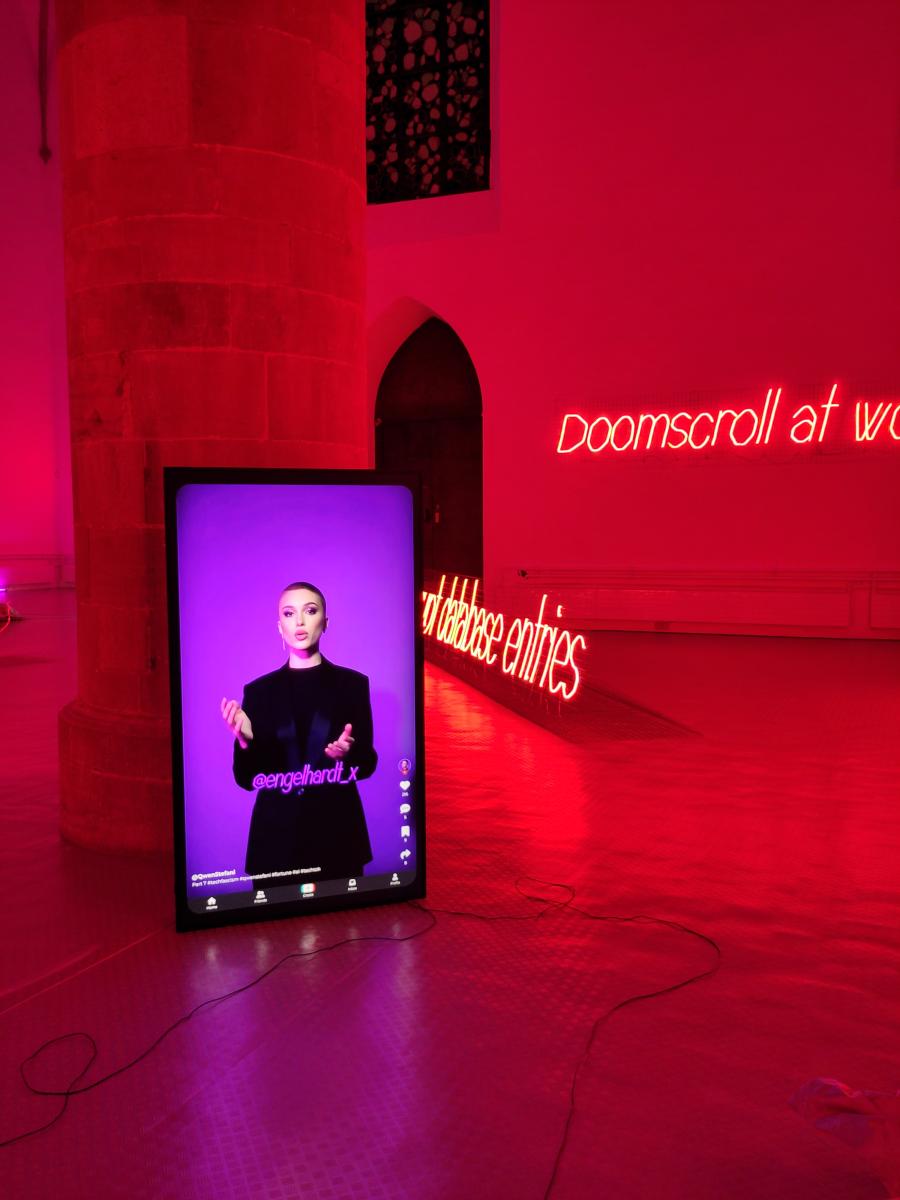
“People are not Google’s ‘customers’ or even Google’s ‘users’, but its feudal livestock.”
— Bruce Sterling, The Epic Struggle of the Internet of Things
!Mediengruppe Bitnik, Neïl Beloufa, Chris Dorland, Arnaud Eubelen, Sayre Gomez, Wade Guyton, Peter Halley, Angélique Heidler, Julia Wachtel
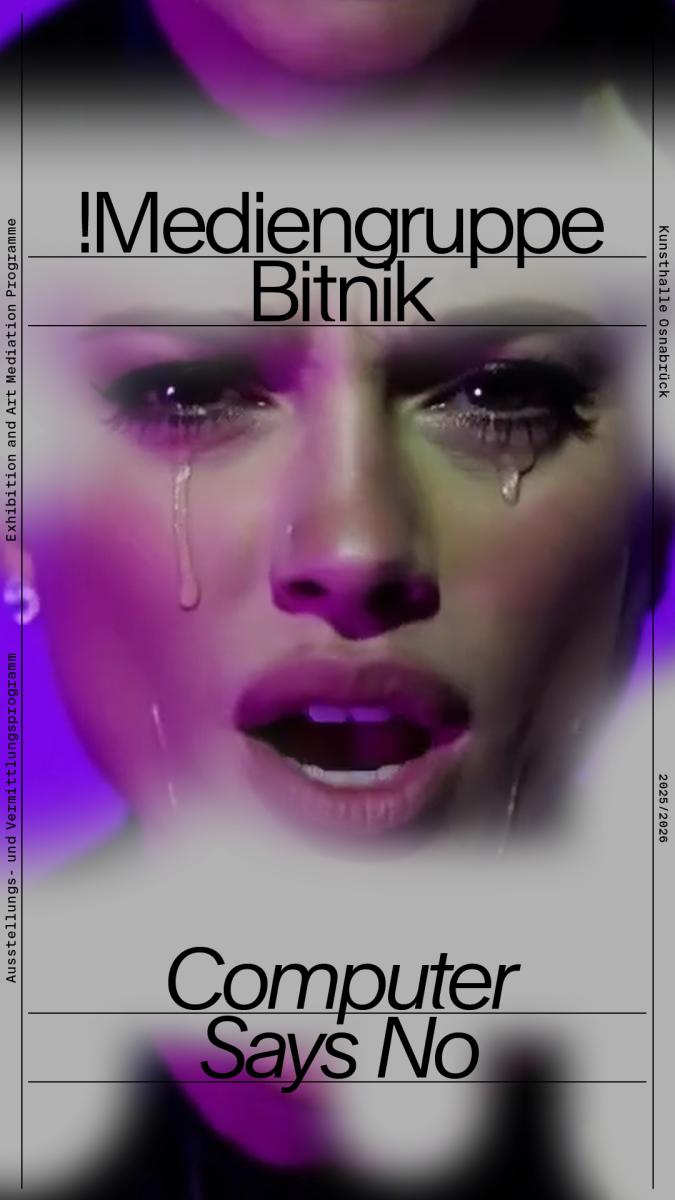
!Mediengruppe Bitnik explores the socio-political consequences of digitalization, with a particular focus on exposing the control mechanisms deployed by tech-corporations and governments. For their solo show in the old church building of Kunsthalle Osnabrück, they will develop a new work that examines the “ghostly” corporeality of artificial intelligence and its artificial mode of “incorporation.”
Anna Jehle and Juliane Schickedanz
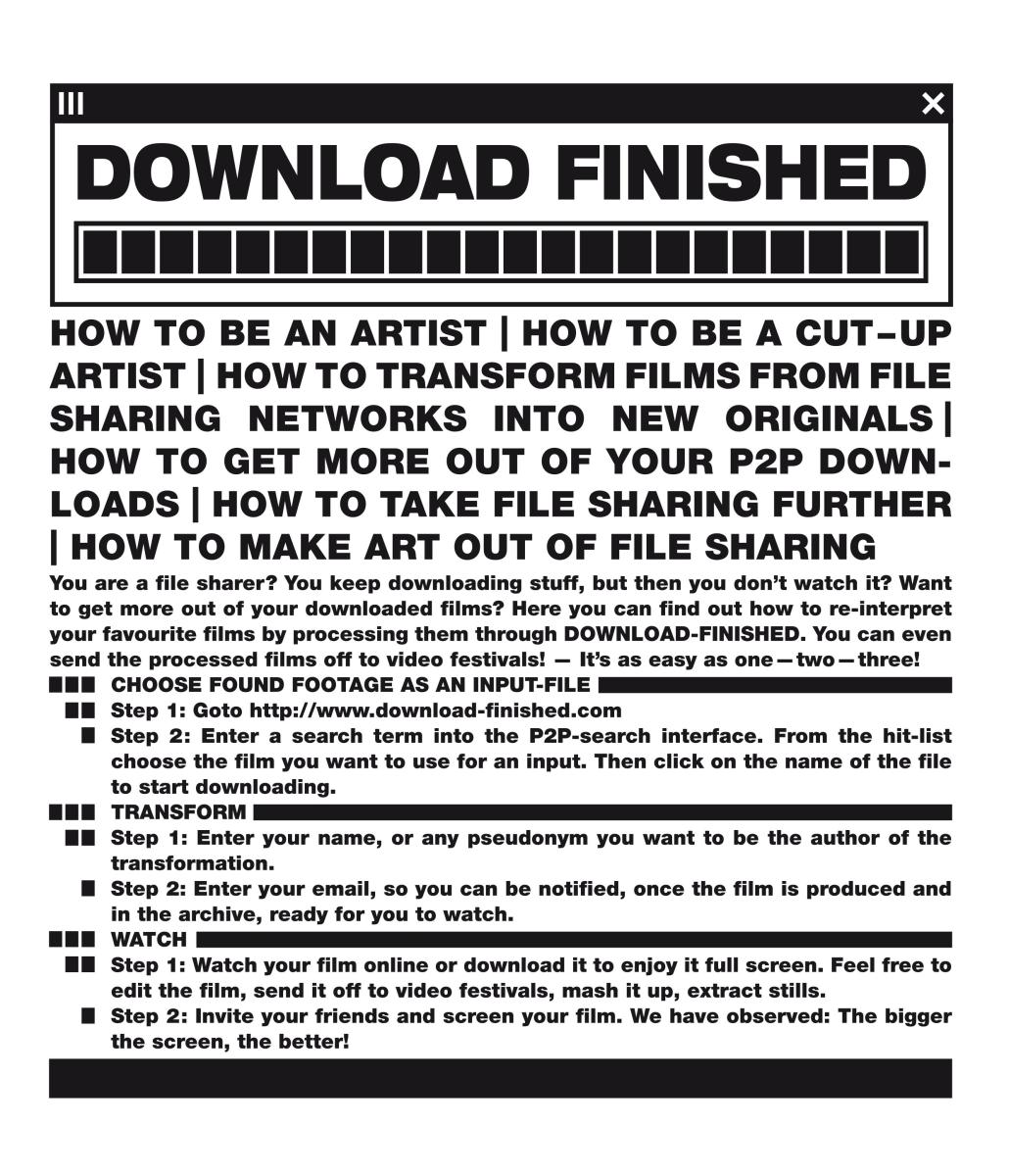
The exhibition offers a deep dive into the flaws of the system. It focuses on how bugs, glitches, and errors become aesthetic forms and tools of resistance. Taking over all the spaces at Le Cube Garges, it combines interactive installations designed at Fablab with works by artists who hijack, distort, or derail the logic of platforms.
Recent
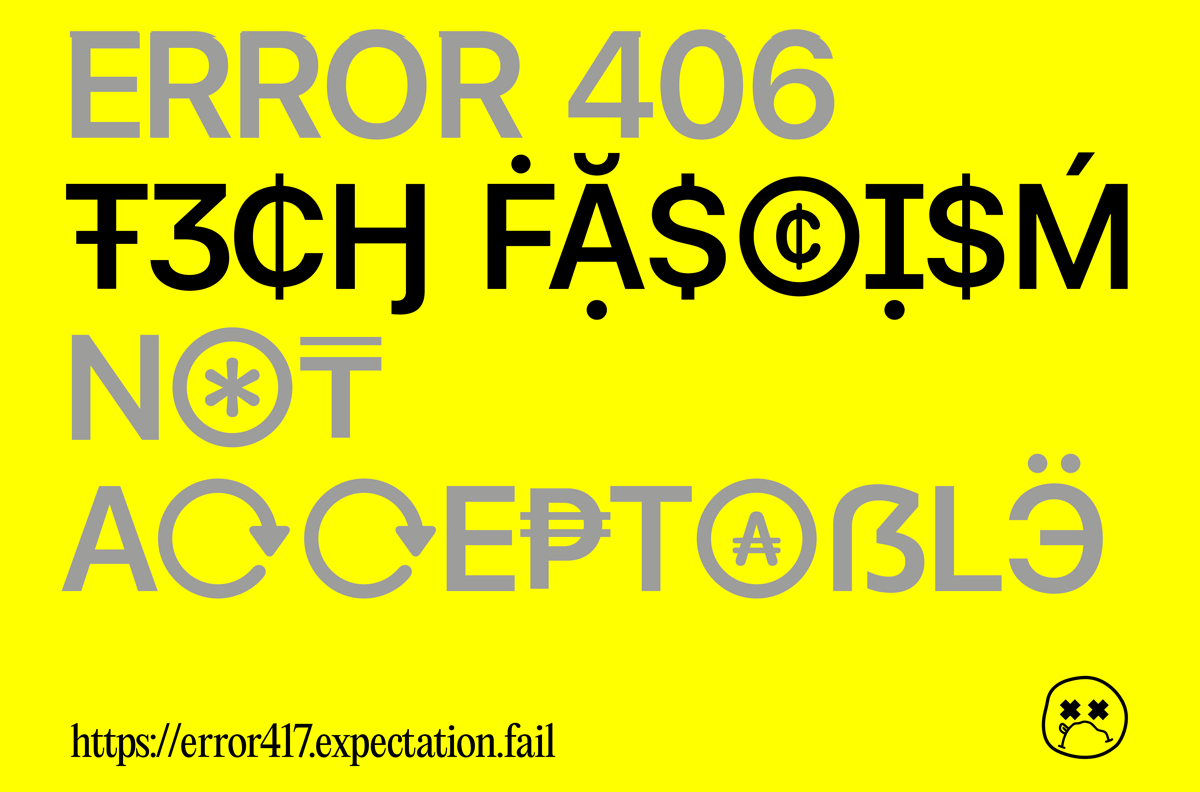
Antifascism: Now. – Symposium
Panel on the occasion of the online exhibition 13 Scores against Tech Fascism, initiated by Error 417 Expectation Failed at Lothringer 13's symposium Antifascism: Now.
The projects gathered in this exhibition explore very immediate, poetic and humorous forms of resistance, refusal and subversion that push back against tech fascism. For our panel we will browse the exhibition together with the artists, with an introduction by !Mediengruppe Bitnik.
13 Scores Against Tech Fascism is an online group exhibition with works by jiawen uffline, 868labs, Alexey Boriskin, kunsf.xyz, The Rojava Center for Democratic Technologies, El Proyecto Sonidero, Enkaryon Ang, Signals Rising, NotToday, Annika Santhanam, David Huerta, permacomputing.net and gabe nascimento.
The exhibition presents 13 projects selected by the jury Hito Steyerl, Nora O’ Murchú and Sam Lavigne, through the open call Error 406 [Tech Fascism] Not Acceptable, initiated by Error 417 Expectation Failed in 2025.
Mariana Delgado (El Proyecto Sonidero), Marloes de Valk (permacomputing.net), Sara Martinez & Nicolas Henano Bonnet (NotToday)
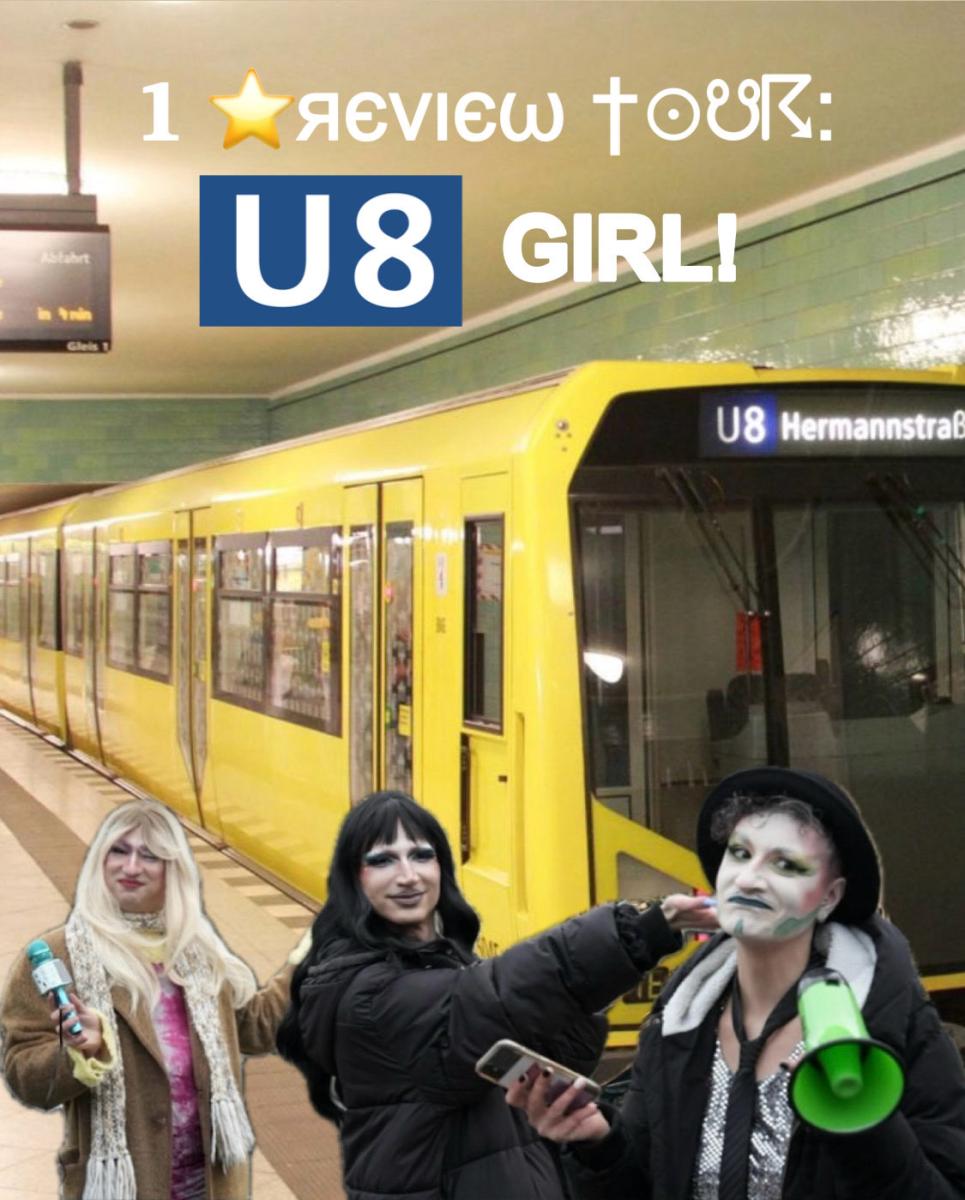
Sat, 31.01.2026
16:00 – 18:00
Ingrid Hideki, Caesaria Mastropos and The Vallien are back for another hideous tour!
Based on reviews gathered with the !Mediengruppe Bitnik, Selena Savić & Gordan Savičić Google Maps plugin: 1 ⭐ Review Tour Browser Extension
Curated by Socrates Stamatatos
See you all at Engelbecken Park on the 31st January 2026 for the start of the tour that will end at /rosa (Heidelberger Str. 28) for a special opening.
Get ready for the most disgusting tour EVER! 🤭
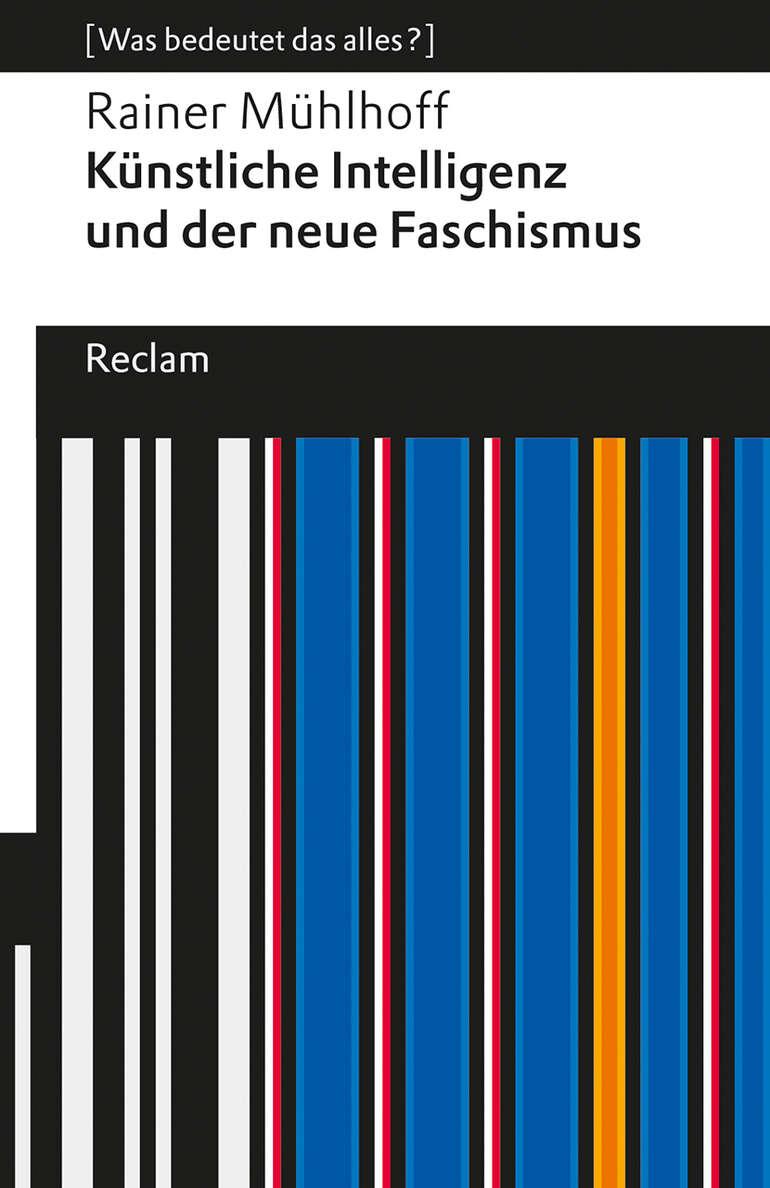
On the occasion of Mediengruppe Bitnik's exhibition "Computer Says No" at Kunsthalle Osnabrück, philosopher and mathematician Rainer Mühlhoff will present his book "KI und der neue Faschismus” (AI and the New Fascism), published in 2025.
Many consider artificial intelligence to be a promise of salvation for humanity – efficient, objective, tireless. But what if this future technology conceals authoritarian power fantasies?
Since Trump’s second term in office, the rule of law in the US has been comprehensively undermined, with an unprecedented level of repression and abuse of state power. At the forefront of this are tech CEOs from Silicon Valley. Silicon Valley not only provides the technology, but also the ideology: a world in which entrepreneurial profit logic, ruthless social Darwinism, and a shift toward anti-democratic political models are openly advocated.
Rainer Mühlhoff’s new book examines the dangerous alliance between tech ideologies and right-wing politics – and asks: What role does AI play in this development? How can we recognize anti-democratic and fascist tendencies in these developments at an early stage – including in Europe?
After an introduction to his book, author Rainer Mühlhoff will talk with the artists !Mediengruppe Bitnik about artificial intelligence, authoritarianism, and resistance in the digital age.
Rainer Mühlhoff, philosopher and mathematician, is full professor of Ethics of Artificial Intelligence at the University of Osnabrück. His research focuses on ethics, data protection and critical social theory in the digital society.He brings together philosophy, media studies and computer science to investigate the interplay of technology, power and social change.
Prof. Dr. Rainer Mühlhoff and !Mediengruppe Bitnik
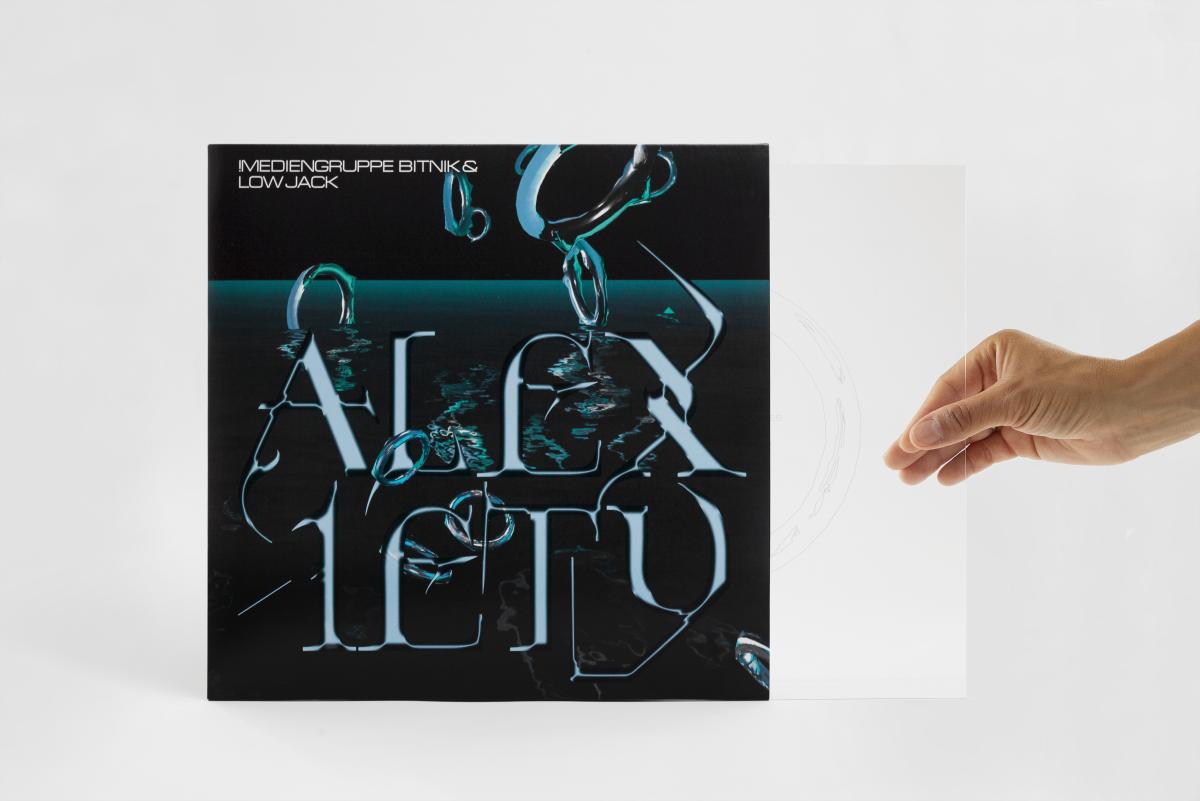
‘We gave birth to technology, and even if it outgrows us or rebels against us, we must take care of it.’
Increasingly, stories are emerging of AI taking on a life of its own – despite being designed to serve us. The Hague-based iii (Instrument Inventors Initiative) takes a critical look at this fragile relationship between humans and technology with an evening of performances, videos, and installations in every corner of Korzo. Can our need to control these tools ever make room for reciprocity? You’ll find out during Mirror, Mirror on the Wall. Well, if you listen to this chatbot and stop by, that is...
The artists:
The following artists reveal how intimate, playful and unsettling our relationship with technology can be. From Marina Orlova’s AI in therapy to !Mediengruppe Bitnik’s musical ‘Alexiety’, from Jaap Blonk battling his digital voice double to Douglas Davis’ pioneering video diary. You’ll encounter hypnotic plays of light and sound by Mariska de Groot and Dieter Vandoren, digital monsters holding up a mirror in Cihad Caner’s work, and drawing robots stubbornly following their own paths in Jorrit Paaijmans’ installation.
Mirror, Mirror on the Wall is a collaboration between Korzo and iii.
Sanneke Huisman
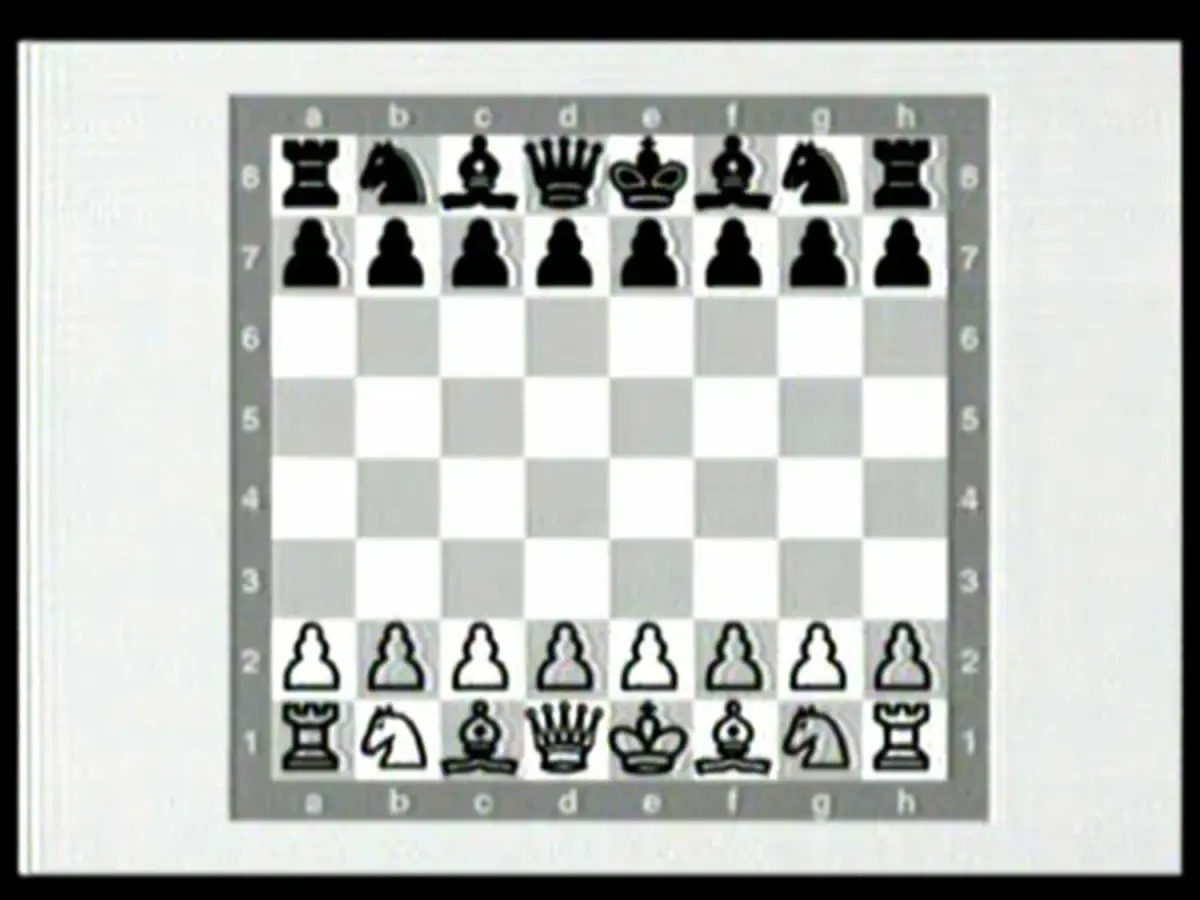
Observation, surveillance, consent are the key words of the Eye-View exhibition cycle curated by Videocity. But in its nocturnal setting, they suggest different reflections: it’s Saturday night, an evening of freedom and liberation. The night offers a setting for the quest of personal and universal limits. Where exactly are these limits? Does surveillance change behavior? Or is the medium of video so integrated into the collective consciousness that, on the contrary, it becomes part of this environment of debauchery, serving as evidence or even a stage?
The “Eye/View” exhibition brings together the eyes of the club's visitors with those of the video artworks and DJ live acts. We invite you to join us for four exciting nights where everything is in motion: our bodies, our heads, our hearts. Four times, where video art, music and club visitors form a fascinating 6-hour total work of art that can only be experienced at Motel Campo.
Marina Dykukha, Xheneta Imeri, Elisabeth Eberle/Konrad Weber, Roberto López Flores, Paribartana Mohanty, !Mediengruppe Bitnik, Dorian Sari, Mia La-Brossard/Nathan Clement
Alizée Werthmüller and the Videocity Team
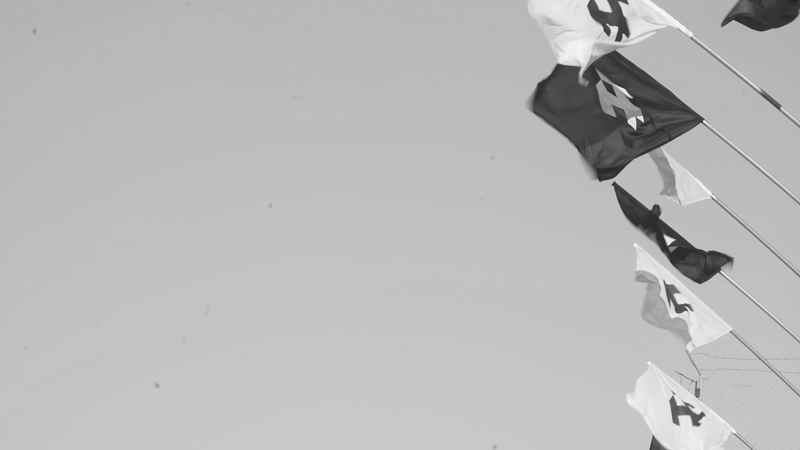
The fifth edition of the Industrial Art Biennial (IAB05), entitled The Vast Automaton, is curated by the international curator Bani Brusadin, who lives and works in Barcelona and Madrid (Spain), and the Italian curator Giulia Colletti, who currently works in South Korea. The biennial will run from September 13 to October 31, 2025, at around 12 locations in the Istrian region: Labin, Pula, Raša, and Vodnjan.
The Vast Automaton delves into the emergence of mega-structural landscapes, spanning energy infrastructure, mining regions, industrial automation and their far-reaching impact on both human and non-human life. Addressing the ongoing polycrisis rooted in 20th-century industrialization, The Vast Automaton opens space for alternative visions of the present. This edition investigates automation, extractivism, and critical technologies aiming to unveil unseen facets of contemporary industrialization.
This edition of the biennial explores the themes of automation, extractivism, and critical technologies, with the aim of uncovering the invisible aspects of contemporary industrialization. The programme unfolds across four spatial clusters — Labin, Raša, Pula, and Vodnjan — and consists of site-specific works, installations, video, and film projections that question shifting power relations and offer new perspectives on our entanglement with technological systems, emerging subjectivities, and the planet itself.
Activating a series of new and hitherto neglected locations, the 5th Biennial presents a diverse group of artists from Australia, Belarus, China, Croatia, Cuba, Cyprus, Egypt, Germany, Russia, Senegal, Serbia, Slovenia, South Korea, Spain, Switzerland the United Kingdom, and the United States of America, whose practices resonate with the industrial and environmental heritage of the region.
Heba Y. Amin, Ema Maznik Antić & Maks Bricelj, !Mediengruppe Bitnik, Živa Božičnik Rebec, Alice Bucknell, Mark Cinkevich & Anna Engelhardt, Kate Crawford & Vladan Joler, Liu Chang, Aleksandra Domanović, Andrej Beštak & Anja Leko, Lawrence Lek, Abu Bakarr Mansaray, Gerard Ortin Castellví, Tanit Plana, Nestor Siré, Suzanne Treister, Marina Xenofontos, Ayoung Kim, Dunja Zupančič / Dragan Živadinov, and others.
Bani Brusadin and Giulia Colletti
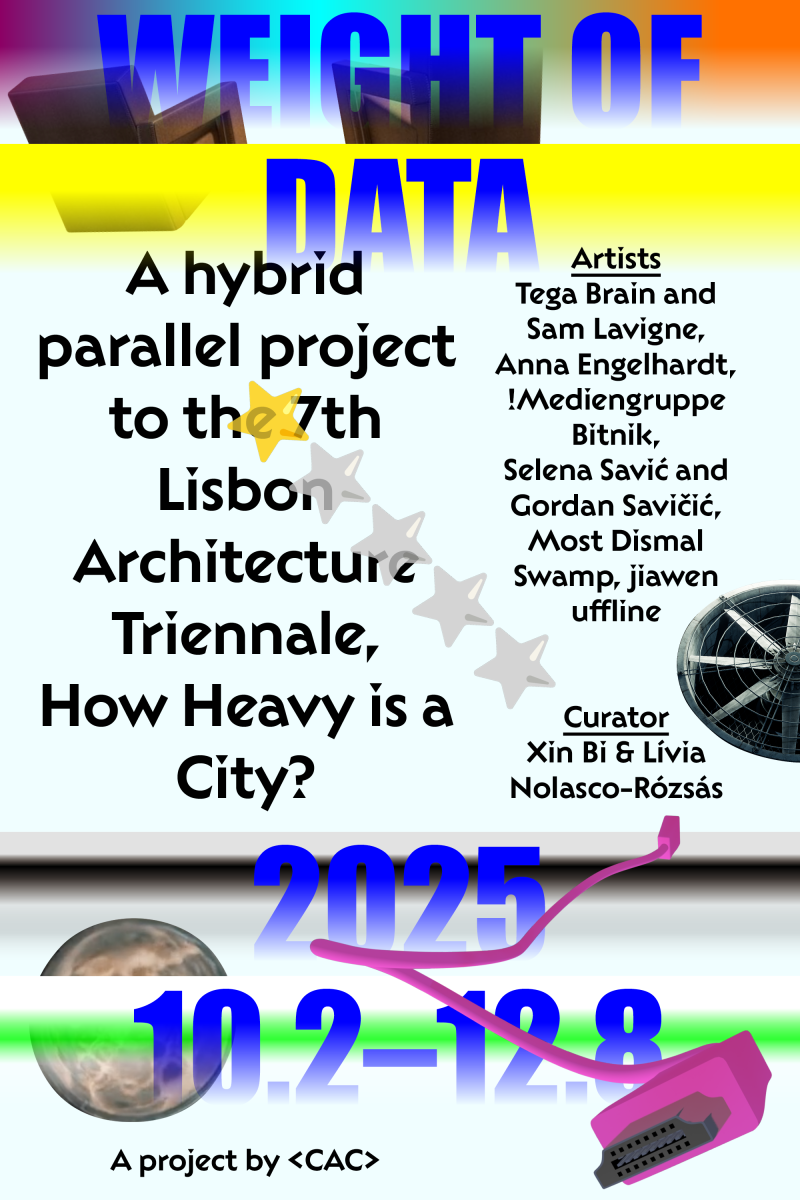
Weight of Data is a hybrid exhibition exploring the speculative presence and spectral materiality of digital objects in shaping urban landscapes via five recent digital art projects. As smart cities appear lighter and more frictionless, they mask the hidden weight of wireless waves, algorithmic governance, and extractive infrastructures. The works trace how these invisible forces haunt urban space—shaping perceptions, emotions, and decisions—while entangling online and offline realms. This parallel project to the 7th Lisbon Architecture Triennale is realized with the support of Chronus Art Center (Shanghai) and curated by Milia Xin Bi and Lívia Nolasco-Rózsás.
Milia Xin Bi & Lívia Nolasco-Rózsás

The first exhibition of the PAX Art Foundation collection engages with one of the most significant collections of contemporary media art in Switzerland, presenting it both as a repository of time and as a projection surface for questions of the present and future. The exhibition refers to an increasingly everyday practice: people seeking orientation from artificial intelligence – they ask, seek confirmation, advice, or even guidance.
The exhibition poses the question: whom do we trust when making decisions – ourselves or the machine? It examines how digital systems influence our freedom of choice and what is reflected or concealed in our decisions. At the same time, it explores how a collection can make decision-making processes visible and how we can sharpen our awareness of our own choices.
Visitors make choices that determine their path through the exhibition. Works that address visions, fears, and technological speculations about the future open up questions about freedom of choice in a world coded through and through. The exhibition becomes a playful, interactive experience about trust, perception, and our relationship to digital systems.

The performative ‘1 ⭐ Review Tour’ follows poorly rated places and sights in the city of Freiburg. With humorous exaggeration and references to Google Maps comments, it questions the mechanisms and consequences of digital rating systems on urban spaces.
This tour is part of the third edition of the Biennale für Freiburg examining new perspectives on the interdependence of tourism, urban development, and global power structures.
Selena Savić & Gordan Savičić and performers Ingrid Hideki, Vallia AKA Vallien & Caesaria Mastropos. Lead by Socrates Stamatatatos
Lorena Juan

Freiburg is caught between the poles of everyday life and tourist attractiveness. How can coexistence be shaped in such a way that Freiburg remains liveable for everyone? Experts from various fields discuss the social, economic and cultural impact of tourism. Together, they will develop feminist and post-colonial utopias for a solidary coexistence in the city.
Experts from the fields of geography, art, urban planning and tourism research will discuss the social, economic and cultural impact of tourism and develop utopias for urban coexistence. The symposium will be framed by a workshop and a performative city tour.
In cooperation with the Institute for Environmental Social Sciences and Geography at the University of Freiburg and FWTM Freiburg
Dr. Nora Küttel, Dr. Marion Mangelsdorf, Mirko Winkel, Moderation: Dr. Lorena Juan, Dr. Nora Winsky, Selena Savić and !Mediengruppe Bitnik
Lorena Juan
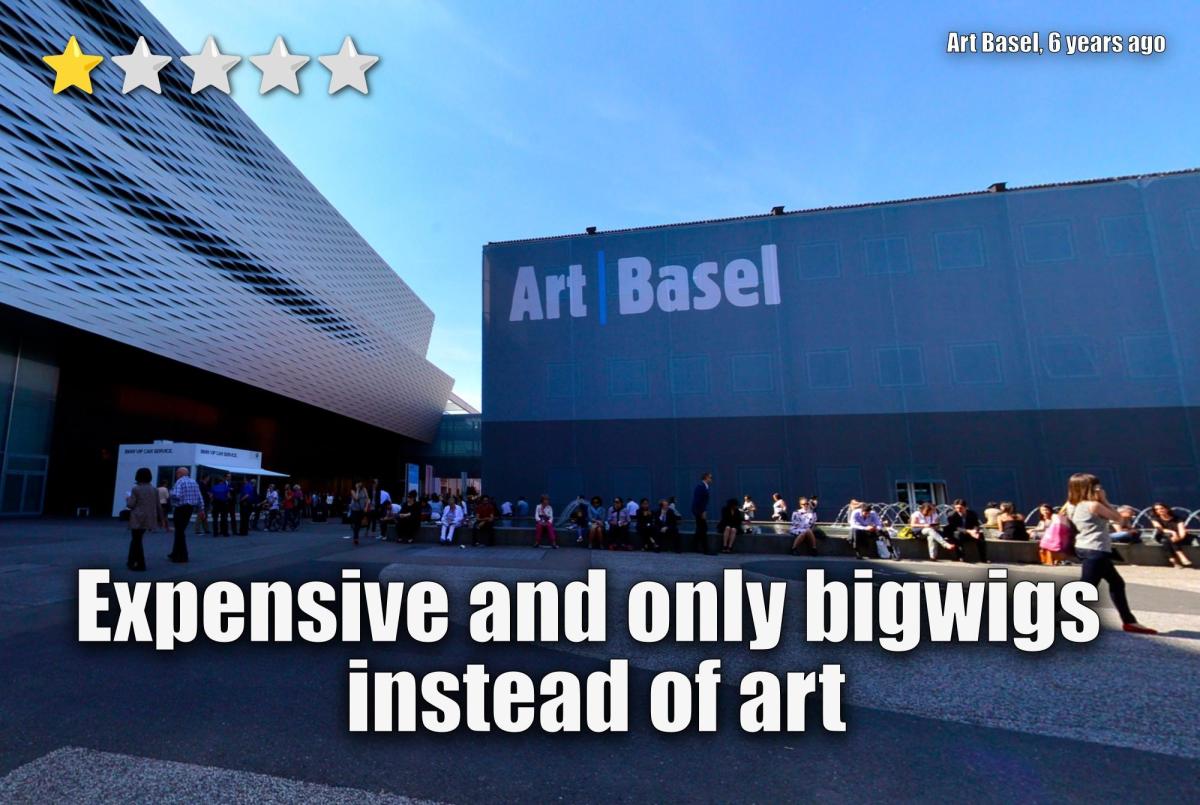
Basel Social Club, Rittergasse 25, 4051 Basel
Basel Social Club returns June 15 − 21, 2025, for its fourth edition, inhabiting a former private bank in the center of Grossbasel. The event will span more than 100 rooms of this iconic building, transforming the vast location into an immersive tableau vivant. Basel Social Club is the first to open the doors of these historic premises to the public, marking the beginning of the building’s activation by FOR ART, a project by Klaus Littmann to revitalize the vacant property on Rittergasse through artistic and cultural interventions until the end of 2028.
In keeping with its tradition of site-specific programming, the 2025 edition engages directly with the building’s symbolic and material past. This year’s theme draws inspiration from the language of finance and exchange, exploring systems of value, commerce, and trade. The resulting exhibition, performance program and culinary options unfold within the bank setting, where boundaries dissolve between currency and care, luxury and necessity, spectacle and service.
Each room offers a unique experience: from a blood bank operated by the swiss red cross, to spaces dedicated to jewelry, beauty, wellness, and games. Durational performance pieces actively engage with the environment, as artists and attendants alike assume participatory roles.
What began as a one-off gathering has evolved into a non-profit platform that resists convention and embraces experimentation. As always, Basel Social Club remains free and open to all.
!Mediengruppe Bitnik, Selena Savić, Gordan Savičić, Julia Scher, Wolfgang Tillmans, Simon Denny, Nan Goldin, Eva Fàbregas and many others.
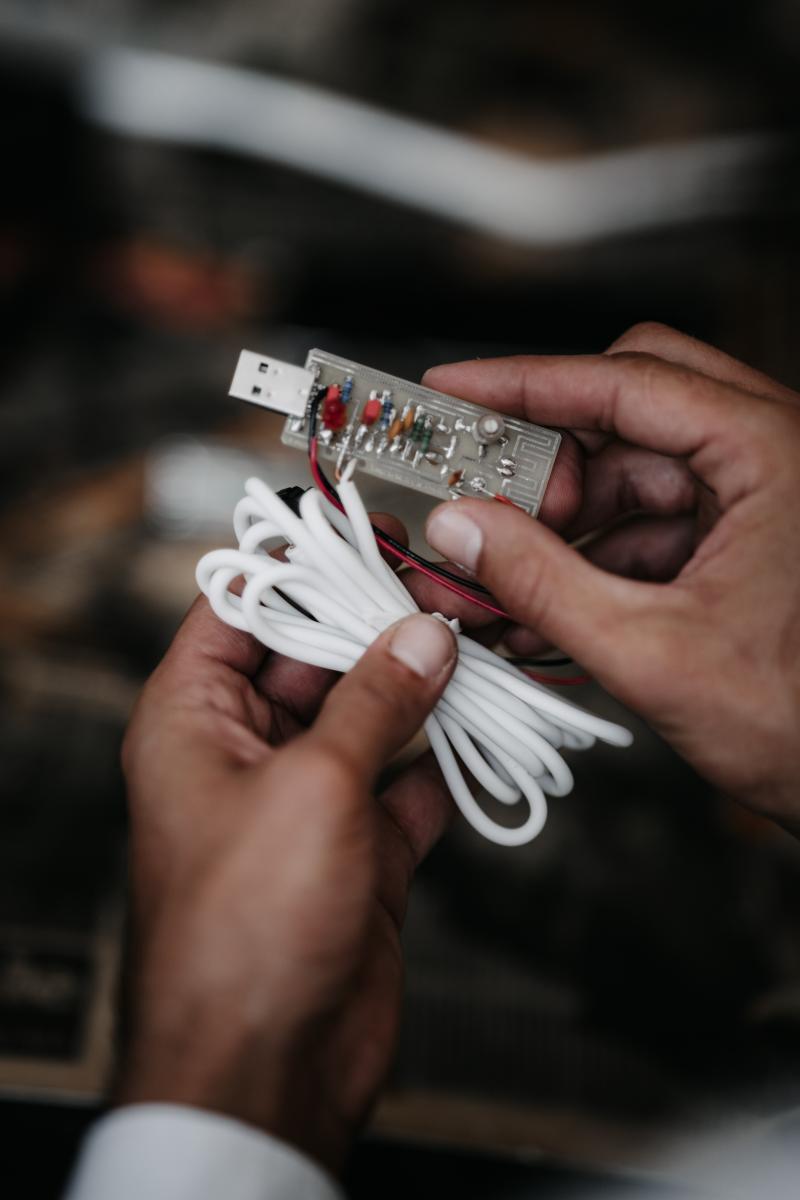
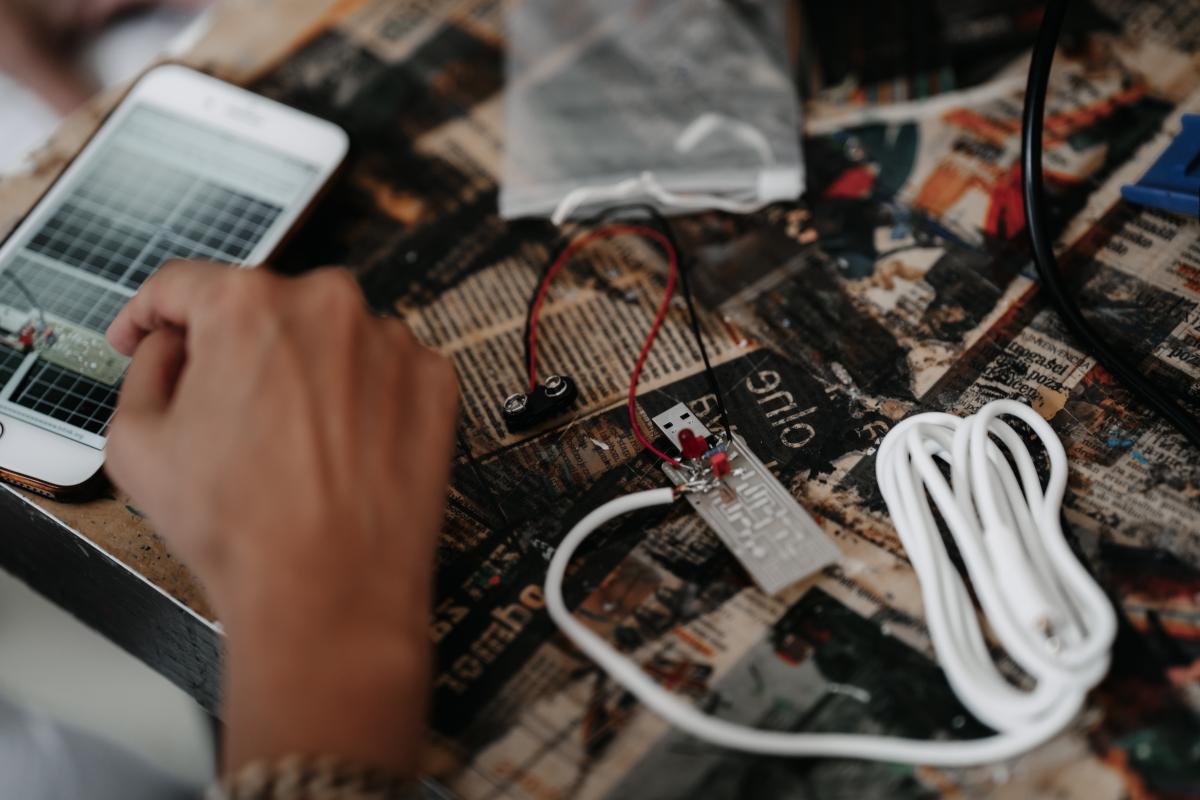
In a world ravaged by endless war, climate collapse and the rise of fascism, what if the radio is not a relic but a tool of revolution for the future? At the site of the former 'Reichssender Wien', a workshop with ISSA (the Island School of Social Autonomy) creates Radio Frida – a name that recalls the German word for peace, 'Frieden', as well as the title of a famous post-Yugoslav pop song. ISSA is an international school on the Croatian island of Vis that tries out and cultivates forms of exchanging knowledge and autonomy as political strategy. This is its first guest visit to Vienna. The two-day workshop entails both practical and theoretical experiments with pirate radio technology. Setting out from previous emancipatory uses of radio, we revive the practices of urban pirate radio, rethink and implement them. It is time to use the radio waves for a global wave of resistance – for a world that rests on justice, equality and love.
With ISSA – Island School for Social Autonomy, !Mediengruppe Bitnik, Gordan Savičić, Selena Savić, Saša Savanović, Marko Pogačar, Srećko Horvat and others.
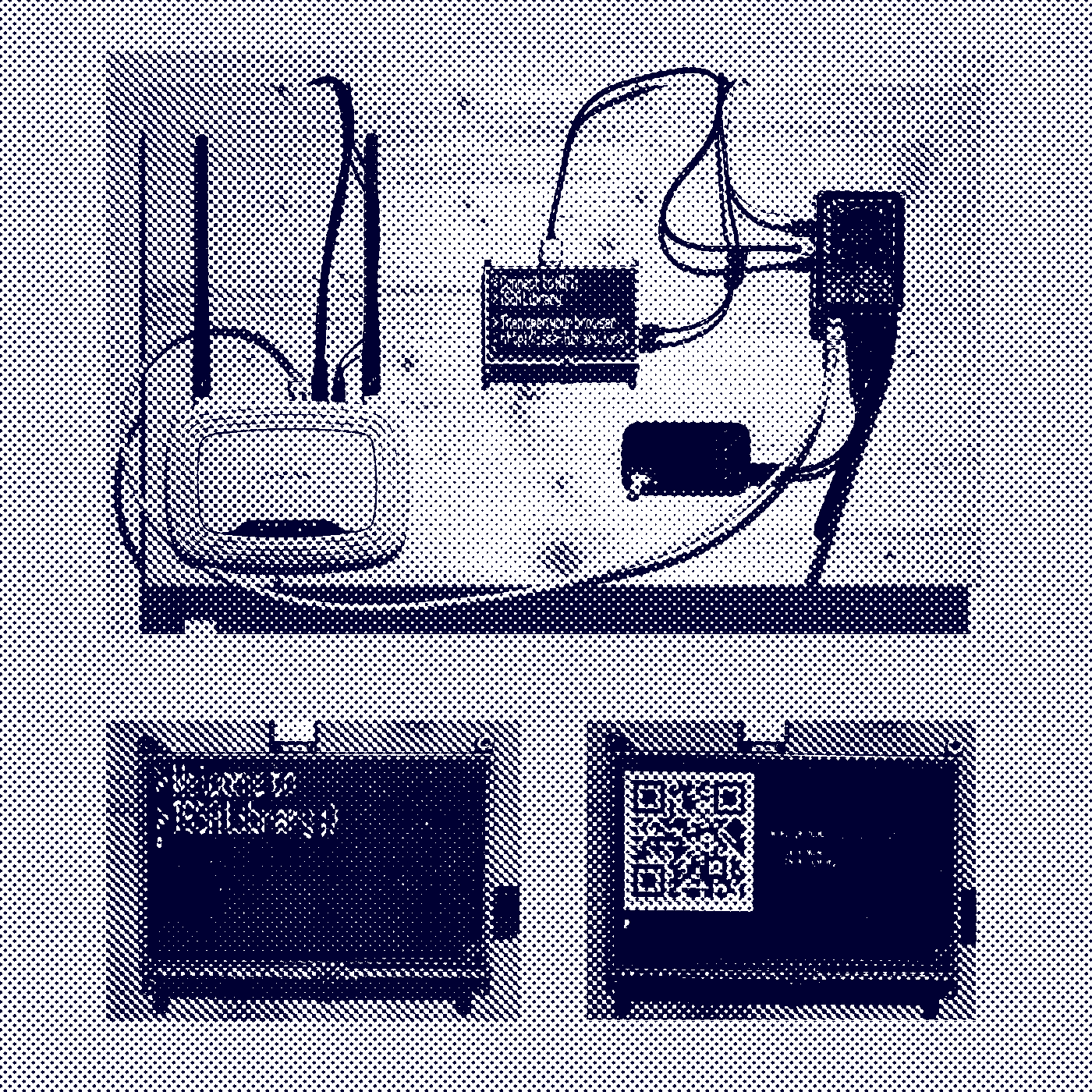
The Garden and The Hedge is Kulturhus Björkboda’s (KUBU) inaugural international summer exhibition and programme, developed in partnership with the artist and researcher Teresa Dillon. Focusing on the garden and the hedge as interfaces and borderlines that shape our understanding of nature and our relationship to it, KUBU’s setting—a former school building nestled in the rural heart of the Kimitoön municipality, an island in the Archipelago Sea, Southwest Finland—provides a unique and rich context for exploring these themes.
Across the Garden and The Hedge programme, over 35 artists, designers, engineers, scholars, researchers and activists contribute their work and thinking on soil health, care and community. The programme, which takes earth and soil as its focus invites reflection on how we listen to the land beneath us. With the exhibition, installations, performances, workshops, and our learning programming, emphasising the importance of soil care, its environmental significance, and the ways in which it connects to our larger ecological, sociocultural and political landscapes and soil stewardship.
Andy Best & Merja Puustinen, Antti Laitinen, Constanza Dessain, Kalle Hamm & Dzamil Kamanger, Kasia Molga and Robin Rimbaud (aka Scanner), Paul Granjon, Knowle West Media Center & Ruth Hennell, Magz Hall, Teemu Lehmusruusu, !Mediengruppe Bitnik, Zabriskie bookstore, Timo Kaukolampi, Antti Tolvi, Shih Wei-Chieh, Marc Dusseiller, Aino El Solh, Sara Ilveskorpi, Jussi Puustjärvi, Ronja Tammenpää & Marjut Nordberg, Eisenia Fetida & Andrew Gryf Paterson, The Centre for the Social Study of Microbes(CSSM), University of Helsinki (Will LaFluer, Maya Hey and Faidon Papadakis), Jon Drori, miha brebenel, Julian Stadon and students from Winchester School of Art, University of Southampton
Teresa Dillon, Tuomo Tammenpää, Sari Kippilä
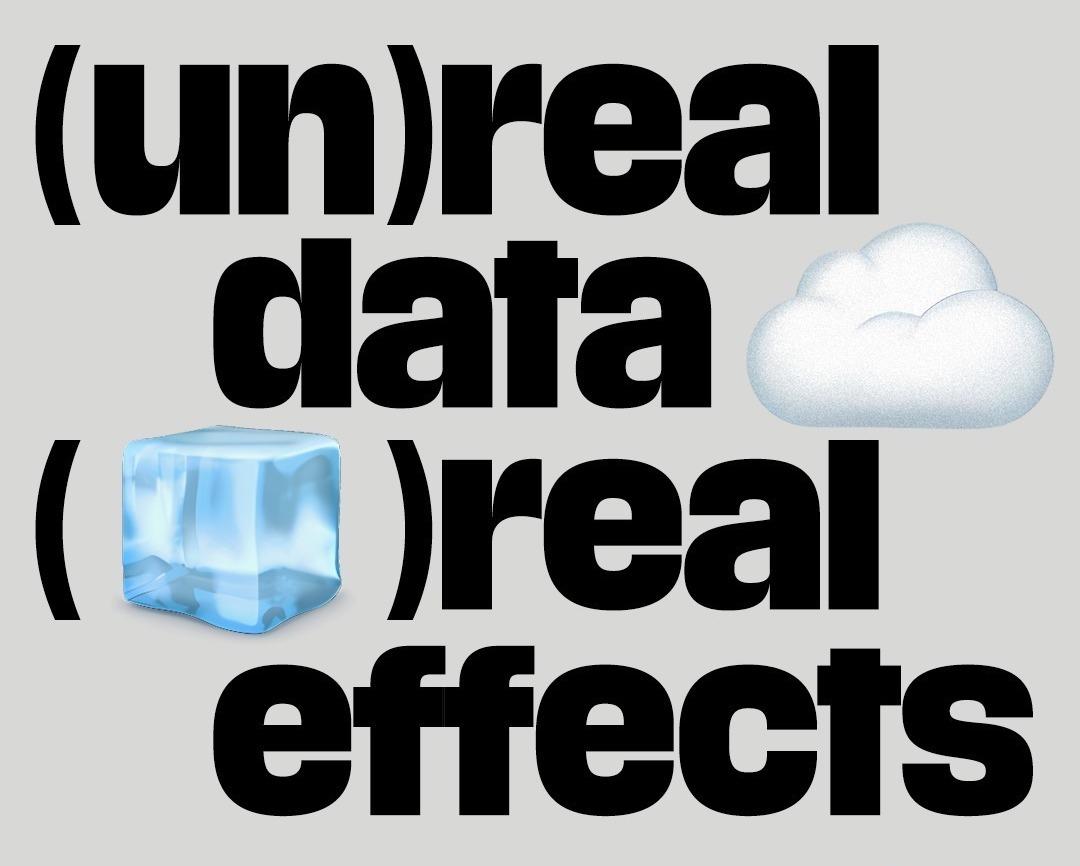
There is a strange disconnect in tech’s recent effects on politics and culture.
While culture and art feel constrained by data populism, scandal management and market opportunism, politics is on a rampage. Nothing seems impossible, from invading or selling Greenland or Gaza, abolishing central banks or food banks, to making Nazis great again.
AI plays a role in accelerating the advent of autocratic rule. It assists in making people and social systems redundant and superfluous; it AI-washes austerity with a “scientific” sheen, it creates tornados and wildfires by burning up natural resources in data centers, it generates Aryans with six superhuman fingers to advertise for German hard right party AfD.
AI industries provide tools for populists and autocrats to proceed like old school genius artists who defy taboos, laws and regulation to perform creative destruction. Their near monopoly industries have vast leverage over workers, markets and users alike and radicalize the chasm between rich and poor. AI tools are brushes, magic wands and chainsaws in the hands of libertarian strongmen.
In light of this cooptation – or shall we say couptation? – we ask, how artists can recapture any creative initiative, or some form of artistic freedom?
How do they/we escape mid-art, the midbrow mediocrity that comes with pimped and averaged mass data tweaked by partisan AI models? How to deal with the competition by full-on futurist performance art now operationalized by tech oligarchs, bureaucrats and incel imperialists?
What kind of tools – if any – are necessary to open up different possibilities for recent technology? Avoid, transform or oppose? Stall, stake or speed up? How to do art when its traditional forms have been culturally appropriated by multipolar dilettantes?
June 4, 2025
12.00 Navine G. Dossos: The Only Flowering Plant in the Ocean
13.00 Constant Dullaart: The hyperreal iconoclasm exploit
14.00 Simon Denny: Flight to Safety
15.00 Break
16.00 !Mediengruppe Bitnik: Unreal Data
17.00 Students of Emergent Digital Media Class: mid- life mid- art mid- journey
18.00 Mat Dryhurst: Protocol Art
Gregory Chatonsky, Simon Denny, Navine G. Dossos,
!Mediengruppe Bitnik, Mat Dryhurst, Constant Dullaart, Antonio Somaini
Hito Steyerl, Francis Hunger
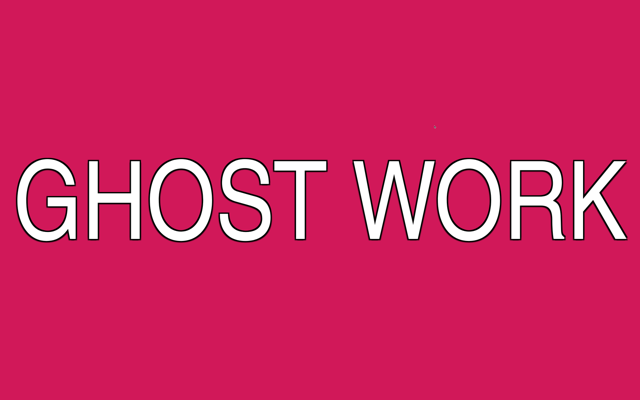
6 May, 19:00 CET
Multimedia Institute
Preradovićeva 18
Zagreb, Croatia
In Ghost Work !Mediengruppe Bitnik look at the ingenious practices people with little or no power devise when systems fail them. Ghost Work documents how !Mediengruppe Bitnik buy access to an active account for the on-demand labour platform Upwork from a Ukranian freelancer. The transaction traces the market for gig labour accounts on messaging apps like Telegram. To boost their pay, workers from lower-income economies “rent” accounts from users in higher income brackets. Although it’s the employers that set the pay, most companies are willing to pay remote workers from higher income locations more for a similar job than their peers in locations which are perceived as having lower cost of living. Accounts can be rented or purchased directly from workers from the desired location. Rent is at least 100$ per month. Some go for as high as 400$, depending on the quality of reputation they come with. Account brokers usually also offer banking services or the sale of payoneer or wise accounts for payout. This is especially important for workers from unbanked locations. To avoid having the rented account get banned, it is paramount that the worker make sure that their location data matches the one stated in the account. This is usally done through a VPN provided by the account broker. With Ghost Work, !Mediengruppe Bitnik documents these resources and mechanisms as practices of survival that help workes navigate on-demand labour systems that they are forced to rely on and which affords them little agency.
The lecture performance Ghost Work is part of the workshop and lecture event "What role does data play in 21st-century development?" organised by the Institute for Development and International Relations (IRMO) in Zagreb.
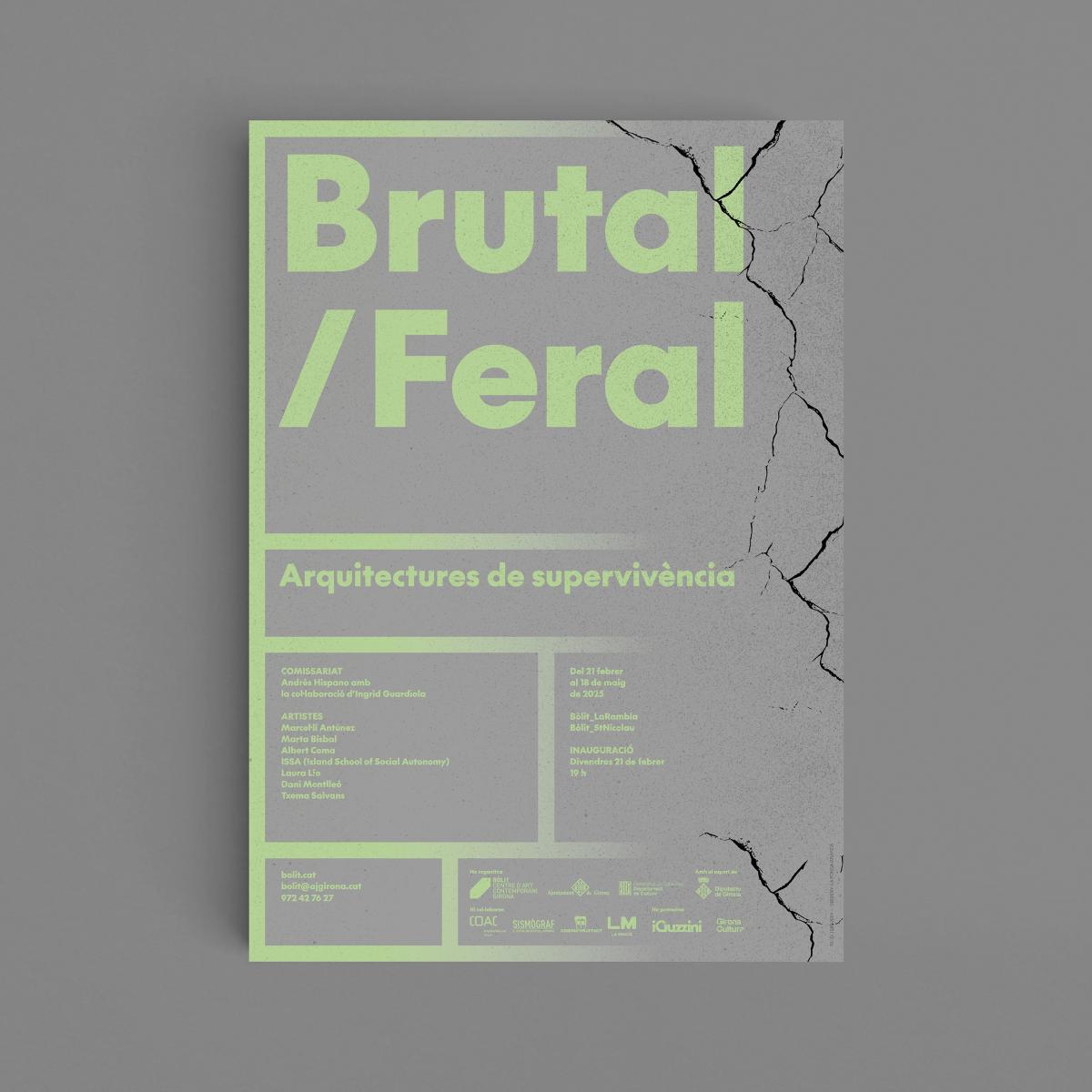
Talk about ISSA – The Island School of Social Autonomy together with !Mediengruppe Bitnik & Srécko Horvat on the occasion of the exhibition BRUTAL / FERAL at Bolit Center for Contemporary Art in Girona.
The exhibition BRUTAL / FERAL is dedicated to two imaginaries in apparent confrontation, namely that of brutalist architecture and that of feral cities, forest cities or rewilded cities. The former never quite dies, while the latter never quite comes into being. It is an illusory confrontation, as in both cases a survival architecture is cultivated that is imbued with a sense of inevitable catastrophe. Walls devoured by earth and vegetation can be discerned in both cases, evoking a common territory, that of abandoned gardens, that of Piranesi’s engravings. A fin-de-siècle melancholy has lingered on into the 21st century, with the emergence of new approaches to the age-old dichotomy between nature and culture in which everything is perceived as a single reality (natural or post-natural), far removed from the narratives that envisage the human and technological spheres as being separate from the natural, magical and wild. Meanwhile, art and fiction constantly make their presence felt in these survival architectures, evoking the allure of a clash of paradoxes and contradictions: sophisticated villains, domestic bunkers, humans in nests, or on islands that serve as nests, nests in industrial ruins, posters with roots and electronic jungles.

A multiplicity of social experiments and practices of community building have been arising lately across the world. These new institutions already form a network that explores and enacts forms of mutual aid, pirate care (care practices that do not align with social conventions of productivity and efficiency) and self-organisation, a social autonomy that, instead of separation, fosters the community connections that are useful in times of planetary crisis, but also for creating conditions for a "good life“ in face of the ongoing and deepening climate crisis, neoliberal destitution and war as permanent state of affairs. While heterogeneous and with different backgrounds and aspirations, one commonality is the attempt to build "convivial tools" . In this conversation about those forms of conviviality, we are joined by the artist duo !Mediengruppe Bitnik, writer Saša Savanović and philosopher Srećko Horvat, two of the co-founders of ISSA, the Island School of Social Autonomy, a community project established on the island of Vis, Croatia.
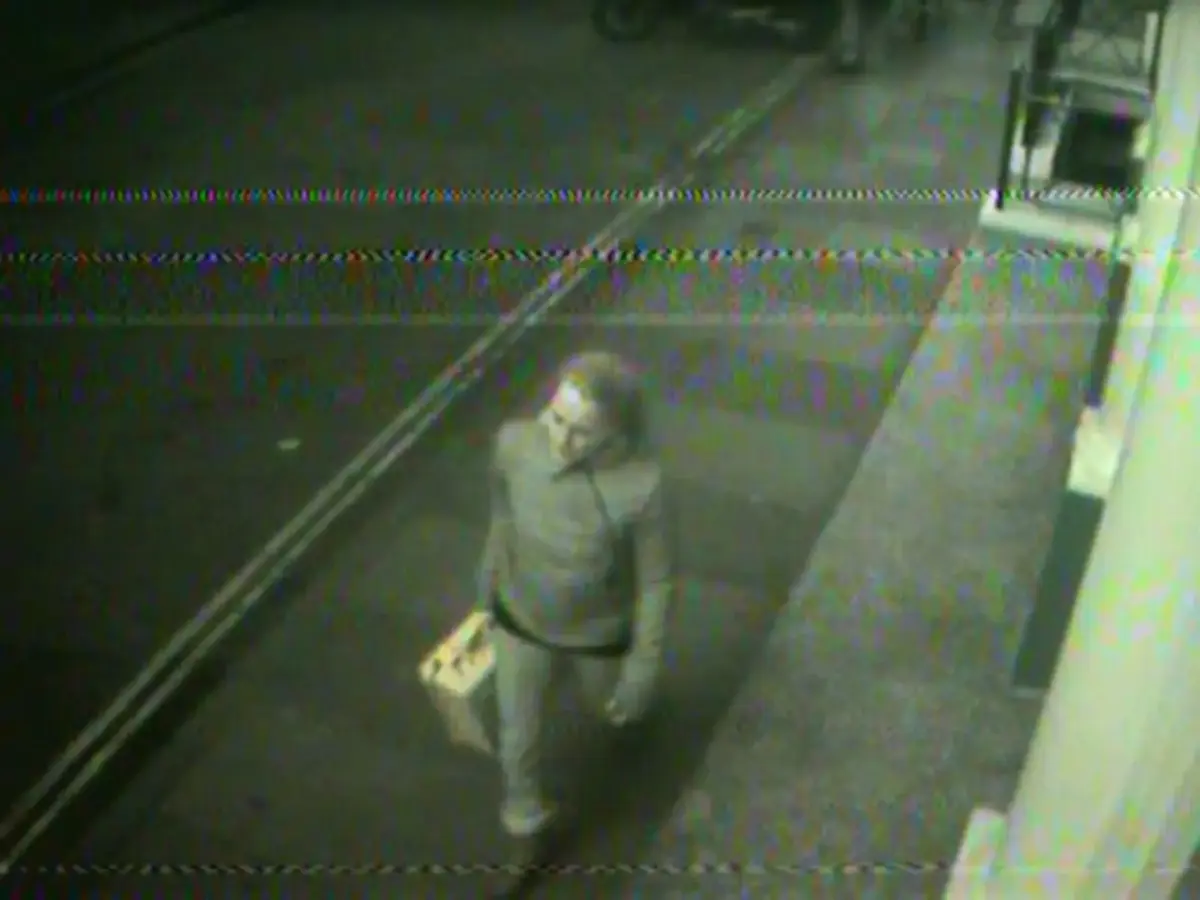
Mit seinem Film »Blade Runner« aus dem Jahr 1982 wagte Ridley Scott einen Blick in die Zukunft.
Seine urbane Vision des Jahres 2019 zeigt Bewegtbild-Projektionen und Megascreens, die mit einer Stadtkulisse eine symbiotische Verbindung eingehen. Eine riesige Schriftanimation wirbt für die verheissungsvolle Off World.
Reale fünf Jahre später für November 2024 planen wir ein Multi-Projektionsszenario für die Offenbacher Innenstadt.
Die Fassade des ehemaligen Kaufhofs und weitere umliegende Gebäude werden durch bewegte Bilder ergänzt und aktiviert.
Auf ca. 15 Projektionsflächen zeigen internationale und regionale Videokünstler_innen, TikTok- und Instagram-Artists in wechselnder Bespielung Werke zum Thema Urbanität zwischen Utopie und Dystopie.
Über einen Open Call haben Bürger_innen die Möglichkeit, selbst aktiver Teil der bewegten und bewegenden Kulisse zu werden. Historische Filmausschnitte ergänzen das Programm.
Agnieszka Jachym / Ann Messner / Anne Imhof / Beat Streuli / Bjørn Melhus / Camila Chinchilla / Carlos Bañón / Claude Lelouch / Francis Alÿs / Gordon Matta Clark / Helen Levitt, Janice Loeb, James Agee / Hydraulic Press Channel / Inaara Mariel, Philomena Hummel / Jonas Englert / Julia Eichler / Lenny Westend / Les Gastons / Mariana Vassileva / Matt McCreary / Mediengruppe Bitnik / Nelly Habelt / Moses & Taps / Nico Joel Helbling / Shoji Yamasaki / Sucuk & Bratwurst / Tashk.X (Jilrock Productions) / Tee Ly / The Visual Dome / Tobias Zielony / Toma Gerzha / Yves Netzhammer
Heiner Blum

Starting at 8 pm
A special series of debates at the Volksbühne am Rosa-Luxemburg-Platz curated by Srećko Horvat & Sebastian Kaiser. #1 with Milo Rau, !Mediengruppe Bitnik, Ece Temelkuran and others
The event will be held in English
Rosa Luxemburg wrote that the world will turn red in one way or another. Either in socialism or in the barbarism of blood. In the midst of the First World War, she not only gave expression to the excesses of capitalism and a fundamental apocalyptic experience; she vehemently insisted on the alternative. Shortly after the inauguration of Donald Trump in the USA and the elections in Germany, we are inaugurating a special series of debates based on the patron saint of the Volksbühne, Rosa Luxemburg, which dares to outline an alternative in apocalyptic times.
The series begins with a reflection on a completely new quality of politics, which is initially coming to a head in the USA: the unification of political power and tech capital. President Donald Trump is not only acting like a globalised Medici. The acronym of the anti-regulatory agency (Department of Government Efficiency) founded by Elon Musk (rocket builder, operator of a digital world medium and billionaire) is certainly not an accident: DOGE.
The modern versions of the Medici family clan and the Doge are gathering currently around them the influential tech companies such as META, Google and Amazon. Just last year, the former head of the NSA was appointed to the board of OpenAI. Everyone knows: Big data not only means potential access to information about people, but also the ability to manipulate it. Tech in the hands of politics – currently: the global right – is an extremely effective instrument of power of unprecedented dimensions. Whoever has the means of communication potentially controls elections!
We talk to acclaimed specialists about the threat of Techno-Fascism, which has already found its way from Silicon Valley to Germany through the personal connection between Elon Musk and the AfD. What are already now possible technological scenarios? Has cognitive warfare against our own population already begun? Will the Neo-Medicis perhaps not even have to abolish elections in the future, as they can perform them technically and design them in a large-scale democracy simulation? What alternatives are there?

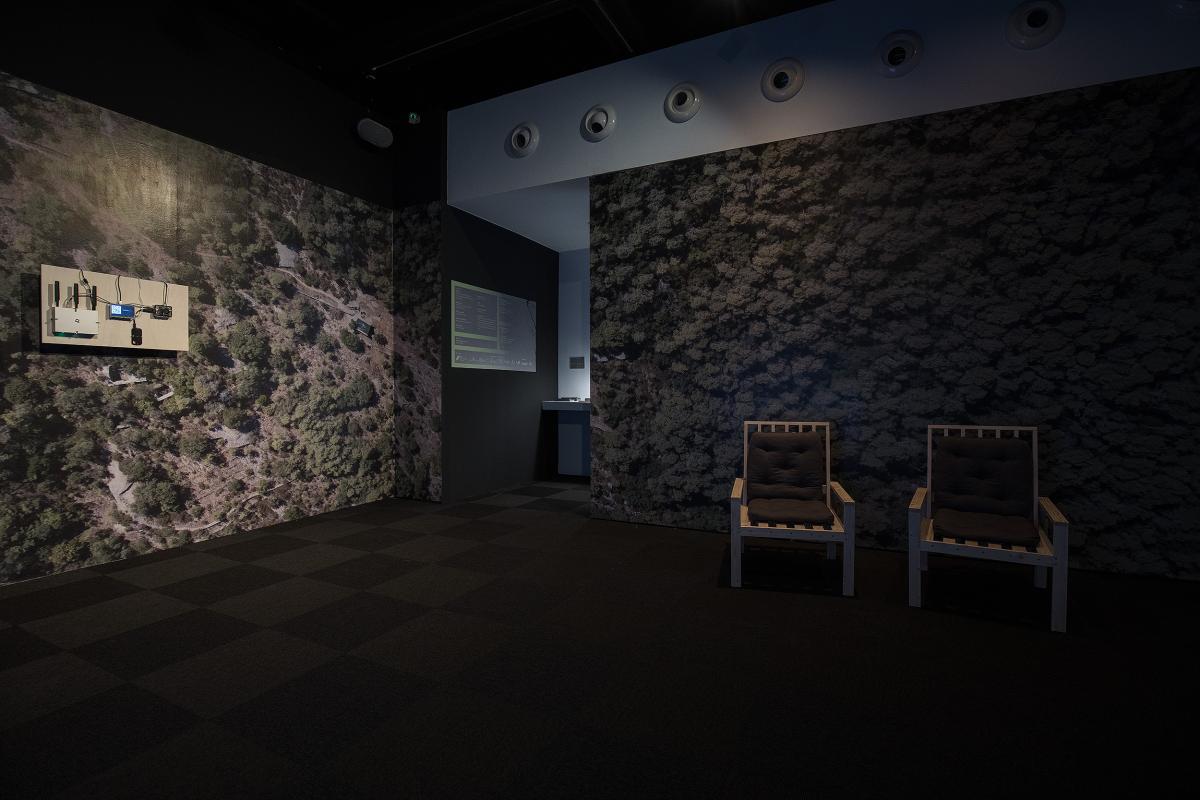
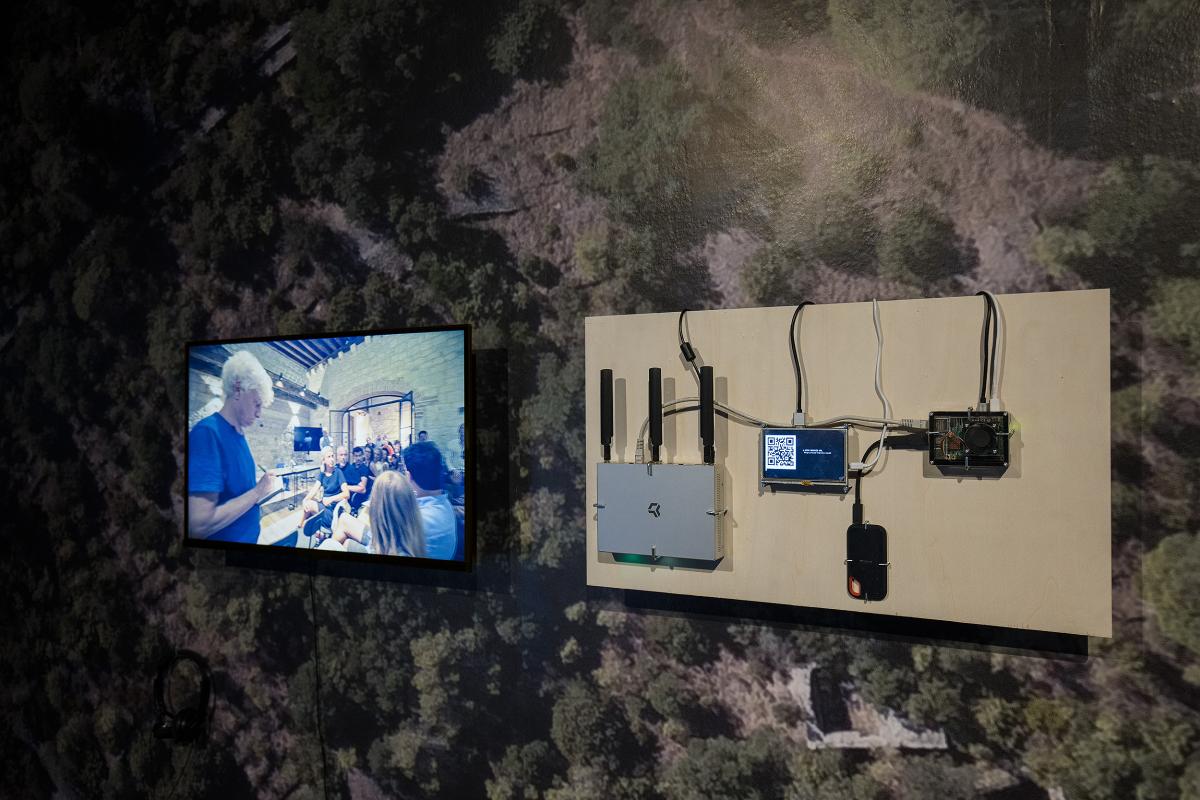
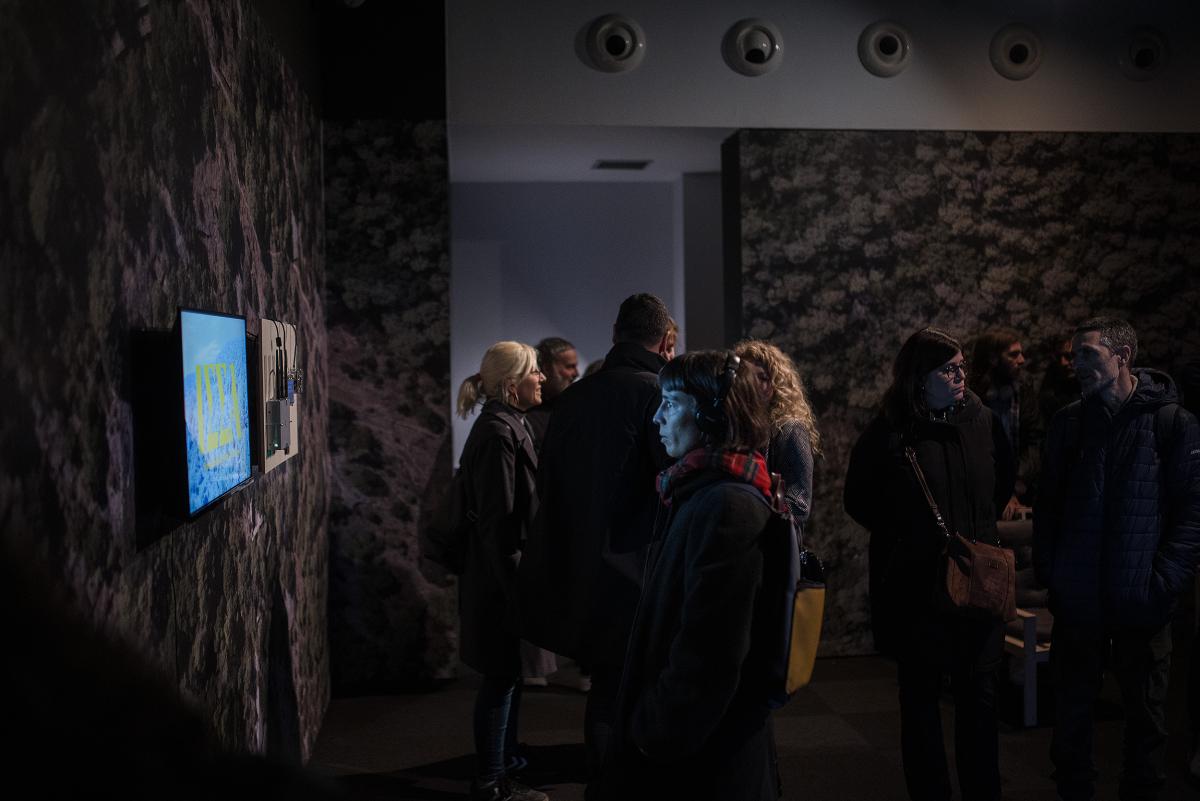
This exhibition is dedicated to two imaginaries in apparent confrontation, namely that of brutalist architecture and that of feral cities, forest cities or rewilded cities. The former never quite dies, while the latter never quite comes into being. It is an illusory confrontation, as in both cases a survival architecture is cultivated that is imbued with a sense of inevitable catastrophe. Walls devoured by earth and vegetation can be discerned in both cases, evoking a common territory, that of abandoned gardens, that of Piranesi’s engravings. A fin-de-siècle melancholy has lingered on into the 21st century, with the emergence of new approaches to the age-old dichotomy between nature and culture in which everything is perceived as a single reality (natural or post-natural), far removed from the narratives that envisage the human and technological spheres as being separate from the natural, magical and wild. Meanwhile, art and fiction constantly make their presence felt in these survival architectures, evoking the allure of a clash of paradoxes and contradictions: sophisticated villains, domestic bunkers, humans in nests, or on islands that serve as nests, nests in industrial ruins, posters with roots and electronic jungles.
Marcel·lí Antúnez, Marta Bisbal, Albert Coma, ISSA (Island School of Social Autonomy), Laura Lío, Dani Montlleó, Txema Salvans
Andrés Hispano with the collaboration of Ingrid Guardiola
Publications (Selection)

The exhibition 'Into the Rhythm: From Score to Contact Zone', co-curated by ARKO Art Center and OnCurating, explores the museum as a vibrant contact zone, where diverse encounters between people, actions, and situations take shape.
Into the Rhythm: From Score to Contact Zone invites viewers into a time and space shaped by communal rhythm. The scores for Small Projects for Coming Communities, which is a project by OnCurating, guide, influence, and instruct the viewers so that certain actions occur in reality, with the viewers becoming eager participants. The written scores direct actions that result in varied performances shaped by the viewer’s unique interpretations and their enactment of the performance. Rather than leading to predetermined outcomes, the scores usher the participants into unpredictable encounters and situations depending on each visitor’s rhythms.
With: Yo Daham, Sohn Younwon, Yagwang, Tangerine Collective, Elisabeth Eberle, Maya Minder, San Keller, Paloma Ayala, Stirnimann-Stojanovic, Sakrowski, Baruch Gottlieb & !Mediengruppe Bitnik.
978-89-6583-030-6 (93600)
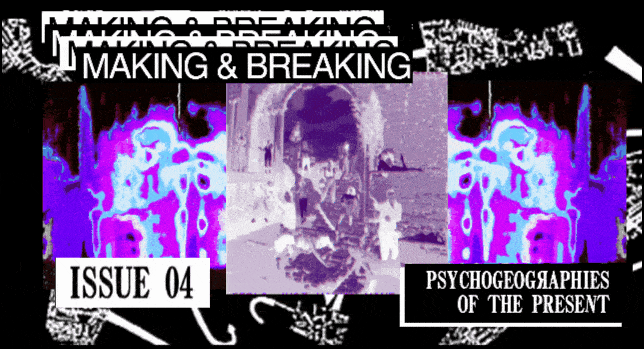
Making & Breaking Issue 04: Psychogeographies of the Present
This issue of Making & Breaking seeks to map out some of the dominant Psychogeographies of the Present. Reworking the Situationist heritage and applying it to our time, many of the approaches presented here extend beyond the city and physical environments into the virtual dimensions of digital socialities, identifying new forces of power and potential sources of emancipation.
At a time when it has become fashionable to celebrate the looming apocalypse as post- or transhuman payback, we urgently need to reinvigorate our desire for the future. Approaching cultural production in psychogeographic terms might help identify what blockages are at play in constraining contemporary art and culture to addressing what feels like only a handful of topics, in a handful of ways.
Jess Henderson & Sebastian Olma
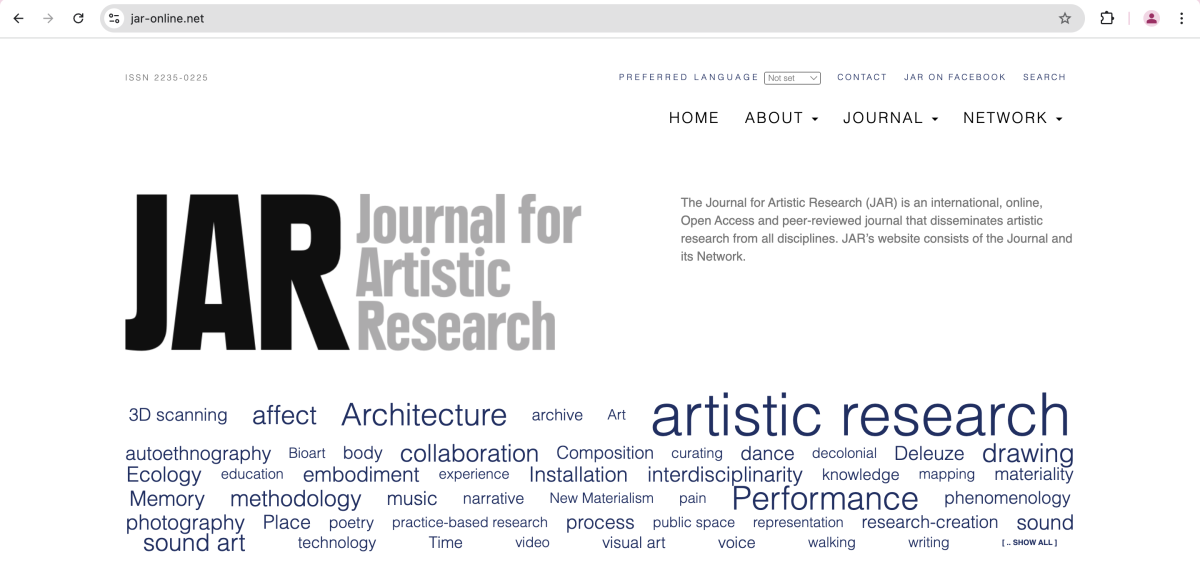
Olga Schubert, Felix Stalder and !Mediengruppe Bitnik discuss curatorial approaches that move beyond traditional exhibition formats, incorporating open-ended dialogues, experiences, and collective actions. These approaches reject the hierarchical, objective perspective of traditional research, aiming instead for collaborative, context-sensitive engagement that values opacity (in the sense of resisting exploitation), care, and solidarity.
The article argues that curatorial research, when practiced as an ongoing and collaborative process, can contribute to new forms of critical thinking and cultural production, capable of addressing the complexities of our contemporary, technology-mediated world.
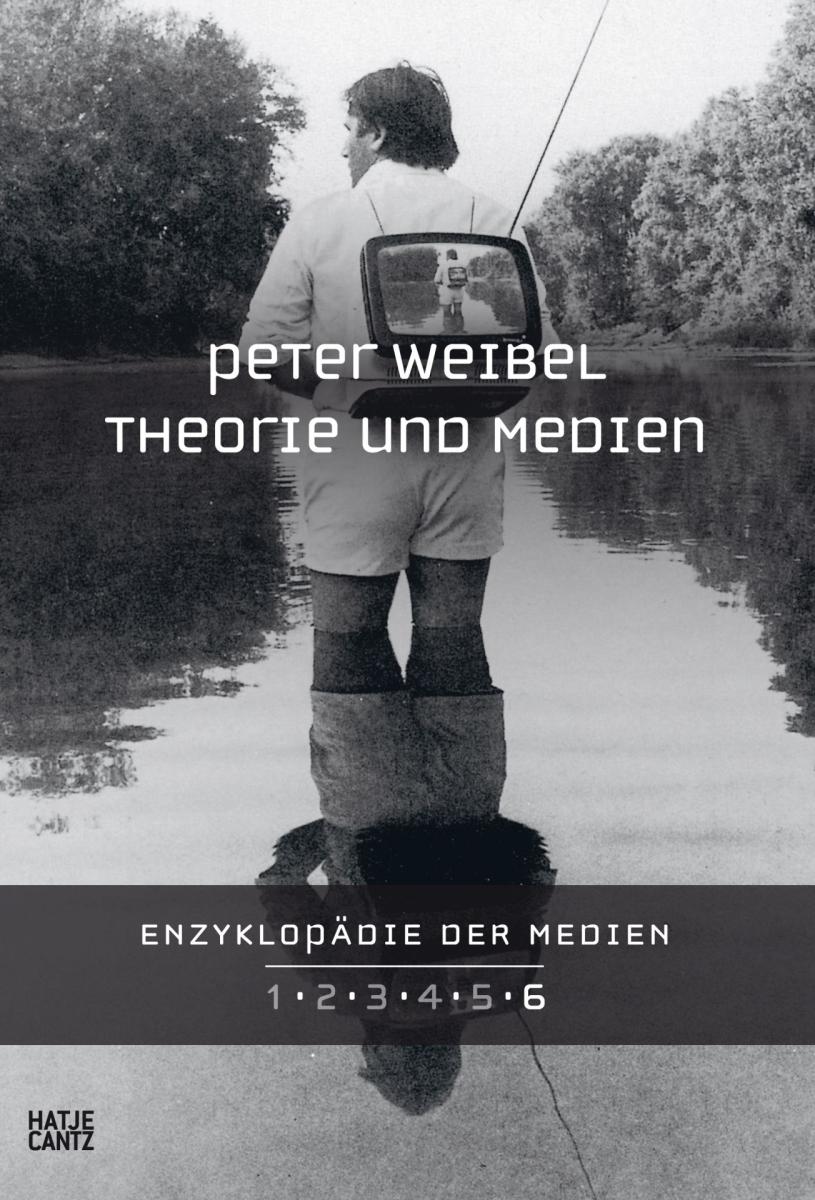
Peter Weibel geht der Frage nach, wie die Medien(-künste) die Welt und unsere Wahrnehmung konstituieren, simulieren und verändern.
In seinen wegweisenden medien- und kunsttheoretischen Texten geht der 2023 verstorbene Künstler, Kurator und Theoretiker Peter Weibel der Frage nach, wie die Medien(-künste) die Welt und unsere Wahrnehmung konstituieren, simulieren und verändern. Ausgehend von systemtheoretischen Überlegungen skizziert er die Medienkünste als Ort der Reflexion unseres Zugangs zur Welt. Seine Essays liefern Werkzeuge zur Analyse virtueller Welten und Bilder bis hin zur Kunst im Zeitalter künstlicher Intelligenz.
Weibel zeichnet darüber hinaus die Allianz von Kunst und Wissenschaft nach und zeigt, wie daraus neue Wissenssysteme entstehen. So finden sich in dem vorliegenden Band grundlegende Texte zur künstlerischen Forschung, zur Transzendierung des Menschen im Sinne eines Transhumanismus, zur »Exo-Evolution«, der »Elektrosphäre« und der »Infosphäre« sowie einer »Renaissance 3.0«.
Kunsttheoretisch hat Peter Weibel mit dem Begriff »Kontextkunst« die soziale Konstruktion von Kunst beschrieben. Seine Theorie der multiplen Modernen zeigt, wie die Repräsentation nicht nur von der Abstraktion abgelöst wurde, sondern auch durch reale Handlungen und reale Gegenstände sowie durch eine neue Werkzeugkultur, eine Verabsolutierung der Elemente der Malerei und der Materialmalerei.
Weibels teils prophetische Texte offenbaren die gesellschaftliche Relevanz von Medienkunst und ihr epistemisches Potenzial. Der Kunst und ihren Institutionen kommt demnach auch eine Bildungsaufgabe zu, die einen emanzipierten Umgang mit der Digitalisierung im 21. Jahrhundert ermöglicht.
Peter Weibel
978-3-7757-3875-0
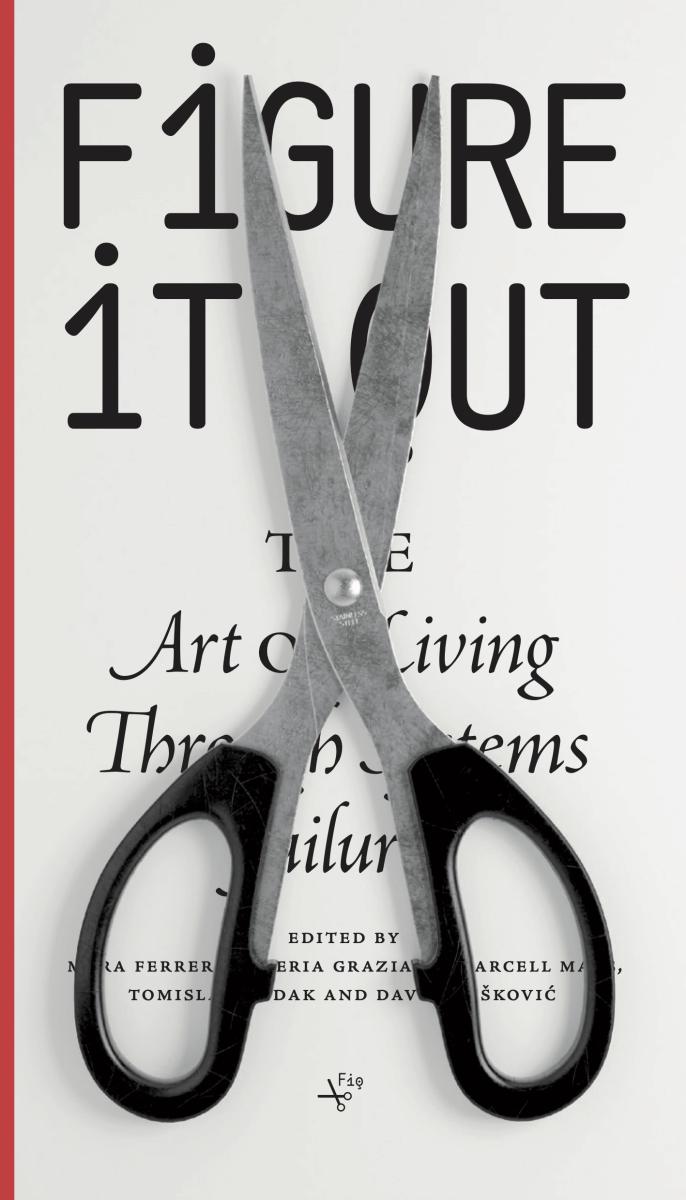
"Snađi se, druže!" – "figure it out, comrade" – is a common phrase used in former Yugoslavia. It originated during the WWII indicating that partisans in action had to come up with solutions under extremely unfavourable conditions. The question, when given instructions for an impossible mission, would often be "but how do I do that?", and the answer would often be "figure it out, comrade". Later during the socialist period, this expression would be used for practices that people were devising when encountering bureaucratic or material constraints in everyday life. All periods and societies have such practices of common lying, cheating and stealing and common phrases to name them.
Figure it Out (FIO) is a collective exploration of stories of ingenuity that people with little or no power devise when systems fail them. The project involves partners from Croatia, France, Greece, Malta and Serbia who work with and engage different communities sharing their stories through art productions, exhibitions, a radio festival, bonfire events and web-zines.
This publication gathers some of the stories people have shared during the project's public "bonfire" events as well as reflections on the topic by members and collaborators of the research group.
Mara Ferreri, Valeria Graziano, Marcell Mars, Davor Mišković and Tomislav Medak
978-953-99764-8-2
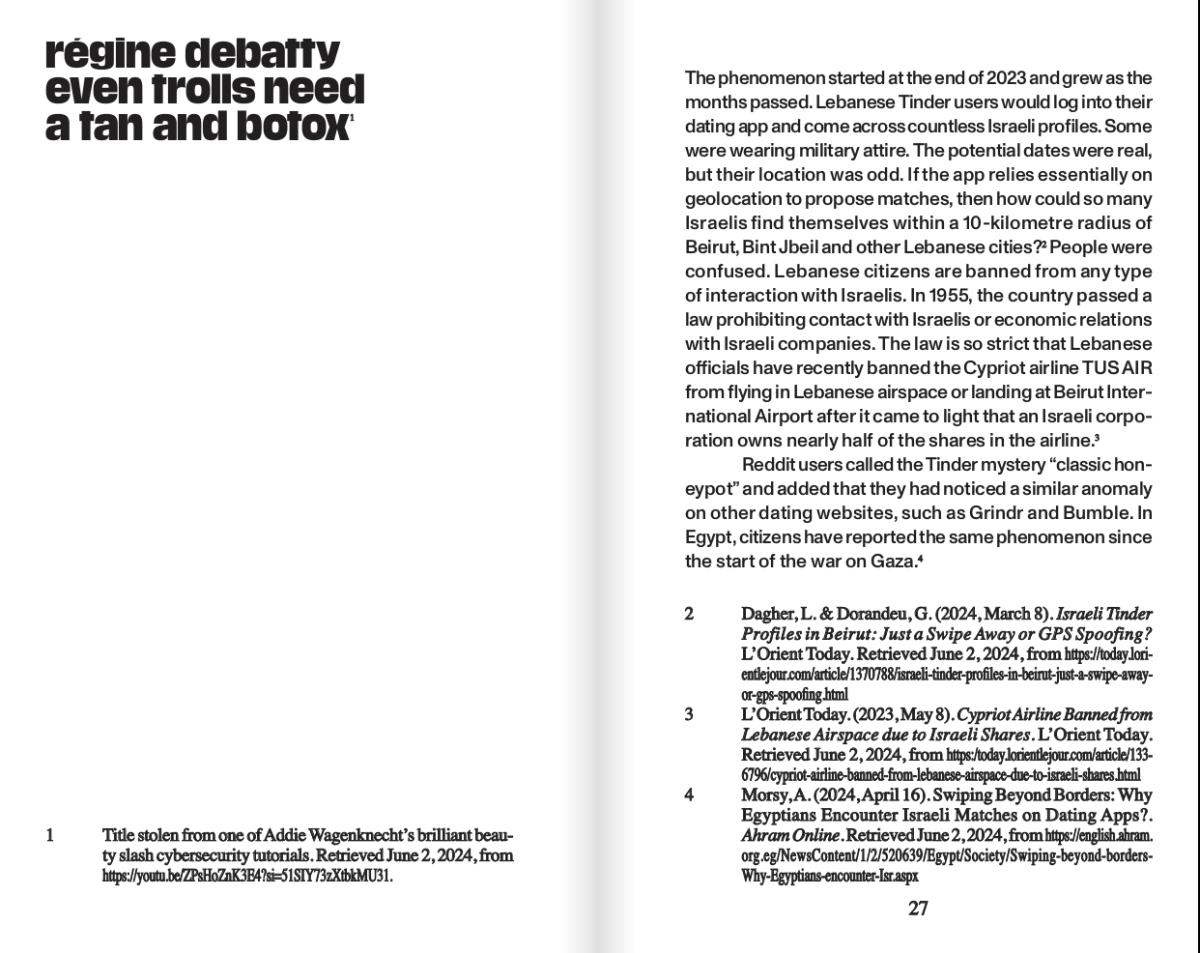
(un)real data ☁️ – (🧊)real effects explores the inherent ambiguity of data as an opportunity to not only describe the world but strategically intervene in it. Is it possible to create specific real-world outcomes by modifying our data streams? Can we intentionally produce data to interact with an algorithmic environment that is opaque, elusive and at the same time all-encompassing? In this book, the authors and artists explore the production of unreal data as acts of resistance and opposition, and as attempts to carve out small and often temporary spaces of agency and autonomy when faced with systems that seem to leave little room for imagination and choice.
!Mediengruppe Bitnik, Janez Fakin Janša
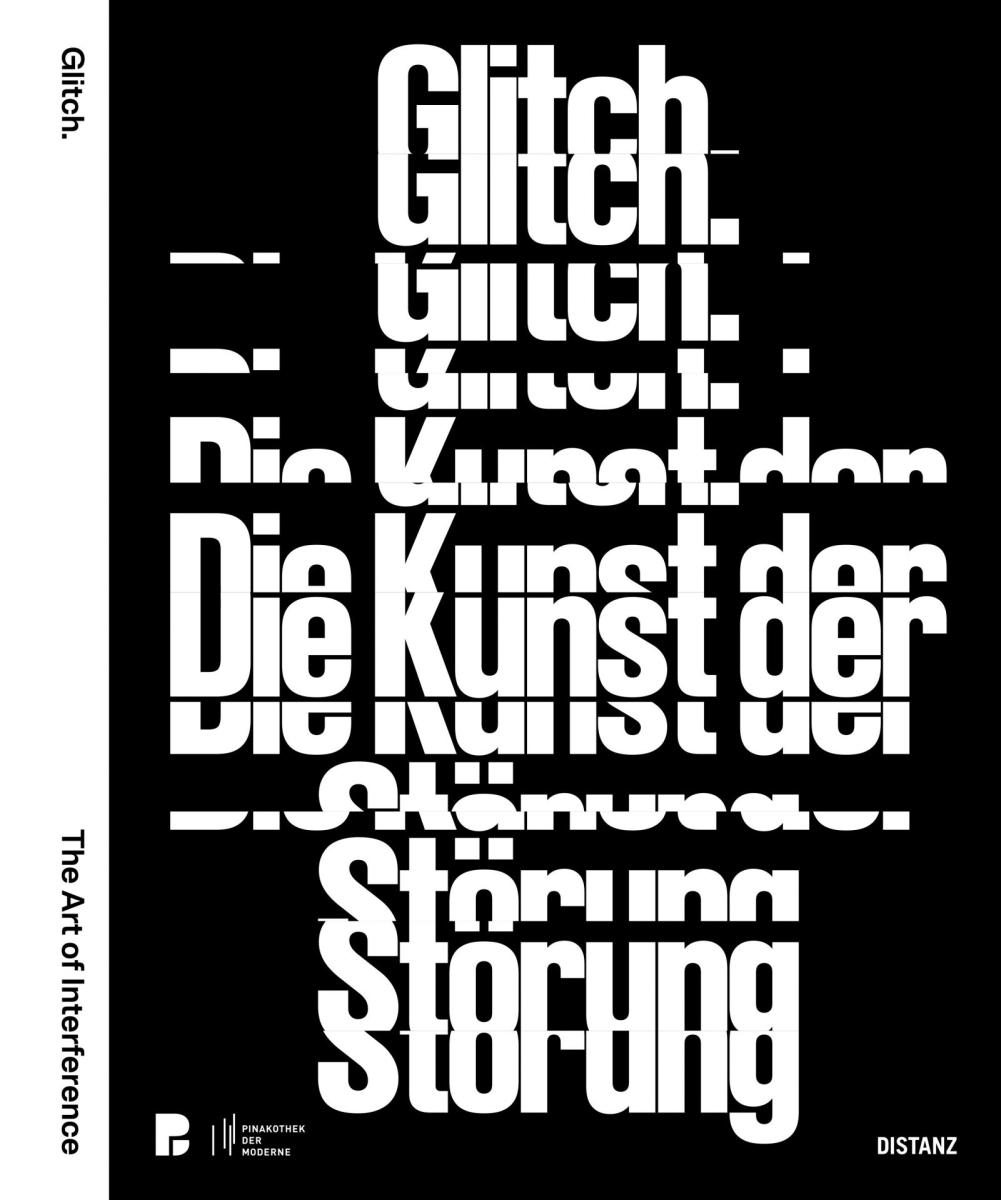
Cracked smartphone displays, distorted images, colorful pixel structures: as one of the youngest and most unpredictable art forms today, glitch art specifically directs our attention to the aesthetic of the flawed. Initially used in technical jargon among radio and television engineers in the 1950s, the term glitch (from the early New High German verb “glitschen”, meaning to [left] glide or from the Yiddish “gletshn”, to slide, slip, or skid) soon comes to designate coding bugs or graphic errors in computer games. A glitch is the unexpected result of a malfunction. In the art context, disruptions find immediate expression in the realm of computer-generated images, in digital media and Internet art. The roots of technical “glitches” reach back to the early days of photography; as an artistic strategy directed against recognized forms of expression, they evolve in avant-garde film and video art and, finally, in digital image media and net art, where instances of image interference are intentionally provoked or deliberately programmed.
The catalogue Glitch. The Art of Interference is the first comprehensive survey with a historical derivation of the potential of glitches in art, media, and society. With works by Maya Dunietz, Jake Elwes, JODI, Joan Jonas, Germaine Krull, Ryoichi Kurokawa, Mame-Diarra Niang, Carsten Nicolai, Kazuma Obara, Nam June Paik, Jiang Pengyi, Sondra Perry, Man Ray, Pipilotti Rist, Steina Vasulka, amongst others, alongside with historical magazines and guidebooks on how to avoid photographic errors as counter narrative. In essays and free-forming writings, Franziska Barth and Markus Rautzenberg, Katrin Bauer, Nick Briz, Doris Gassert, Ute Holl, Justyna Janik, Franziska Kunze, Rosa Menkman, Mame-Diarra Niang and Agnieszka Roguski provide broader insights into the recent fields of research on the global phenomenon of glitch art.
Franziska Kunze and Katrin Bauer
978-3-95476-600-0
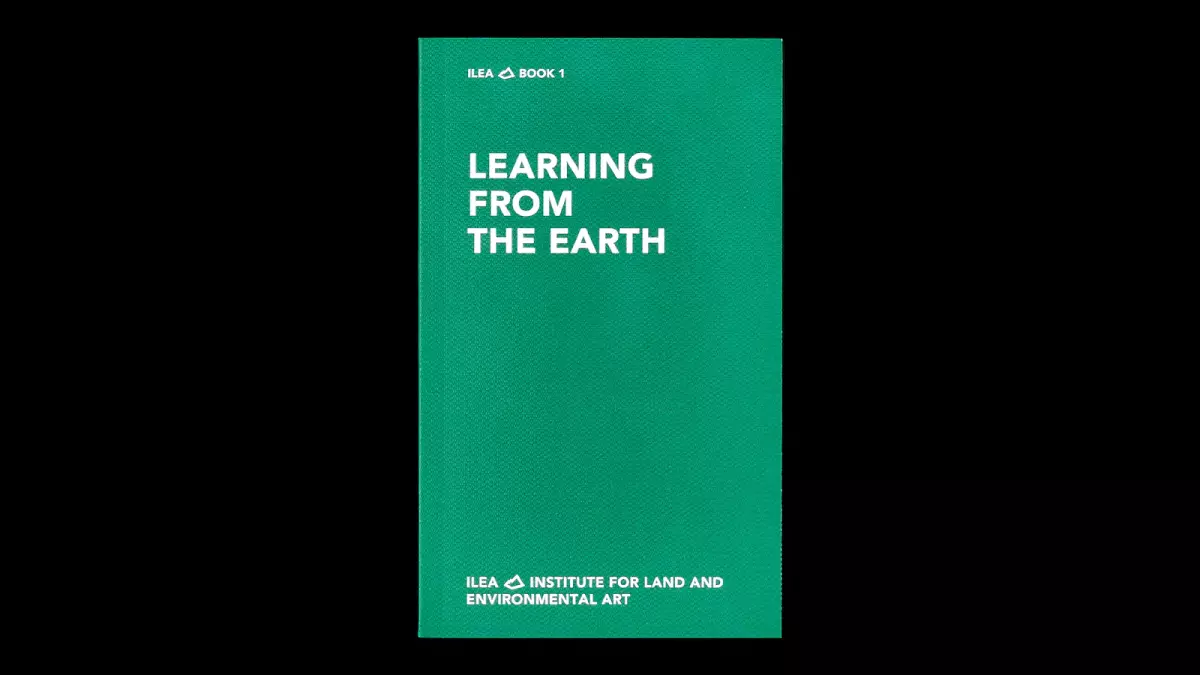
The texts, ideas, instructions, and art projects gathered in this book reflect on our relationship with the earth and the lessons we can derive from it. The contributions not only urge us to respond to the pressing issue of climate emergency, but also remind of certain neglected or unlearned ways in which we can engage in dialogue with the earth. What they have in common is the question of how we can shape a more ecological and just future.
Johannes M. Hedinger
978-3-90711-264-9
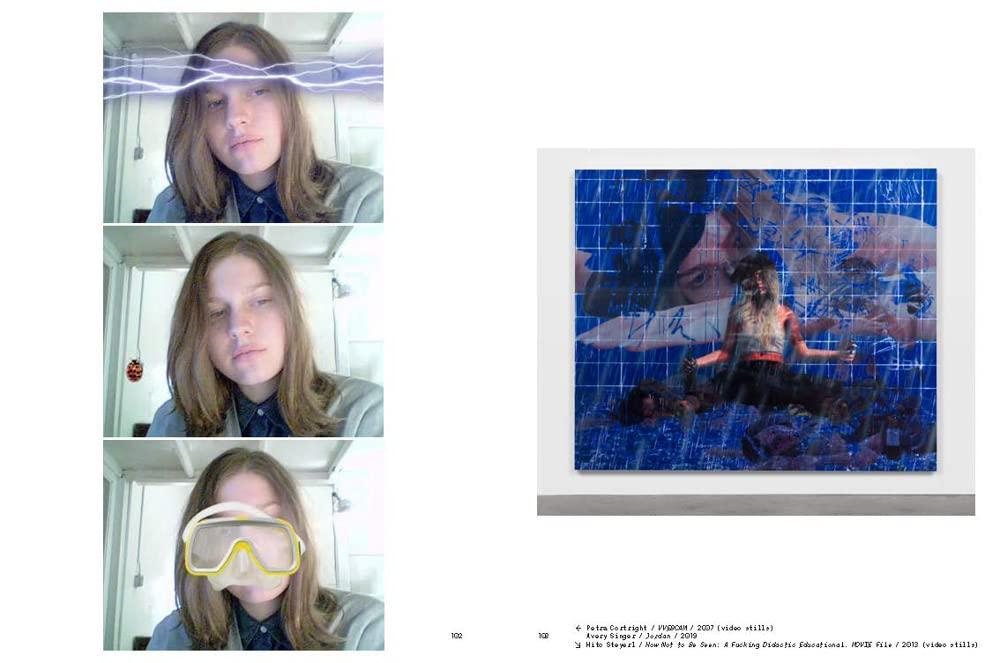
Catalogue to accompany the exhibition «I’ll Be Your Mirror: Art and the Digital Screen» at The Modern Art Museum of Fort Worth edited by Alison Hearst and featuring contributions by Marla Price, John Suler, Omar Kholeif and Tina Rivers Ryan
Surveying some 50 years of groundbreaking art related to digital technology and the screen, I'll Be Your Mirror examines how technologies such as home computers, smartphones and TV have affected art and life over the past five decades. It traces a trajectory stretching back to the late 1960s, a watershed moment in the rise of the screen in the home. Today, accelerated by the pandemic, our daily life is mediated through screens for work, entertainment and sociality.
Alison Hearst
978-1-63681-095-9
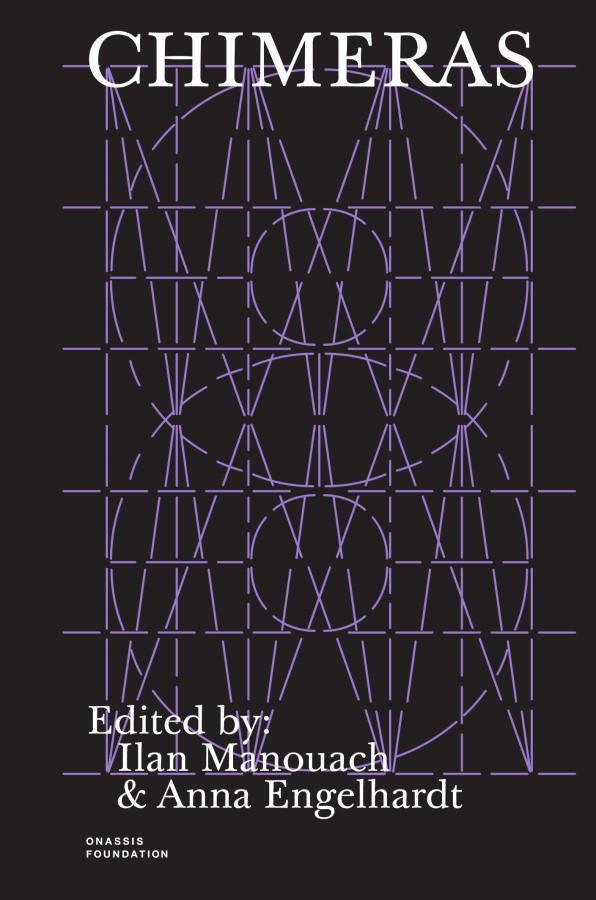
This volume attempts to disassemble and reformulate what one might understand as AI by taking apart both notions of 'artificiality' and 'intelligence' and seeing what new meaning they produce when recombined.
We summon the trickster of the natural order, chimera, both a mythical creature and a genetic phenomenon. Drawing upon chimerism allows us to broaden 'artificial intelligence' into 'synthetic cognition'—an approach that highlights the duality of 'artificial' and 'authentic', amplifies non-human methods of cognition and anticipates modes of symbiosis.
With this aim, the editors, Ilan Manouach and Anna Engelhardt, assembled an inventory in which one can find contributions from scholars and artists with interspecies, disability, monstrous, feminist, and decolonial approaches, as well as thinkers and technologists engaged in a broader field of AI. By questioning fabricated norms that constitute and maintain notions of 'artificial' and 'intelligence', this inventory acts as a toolbox one can use to merge these terms into a novel chimera.
Ilan Manouach and Anna Engelhardt
978-618-85361-8-0
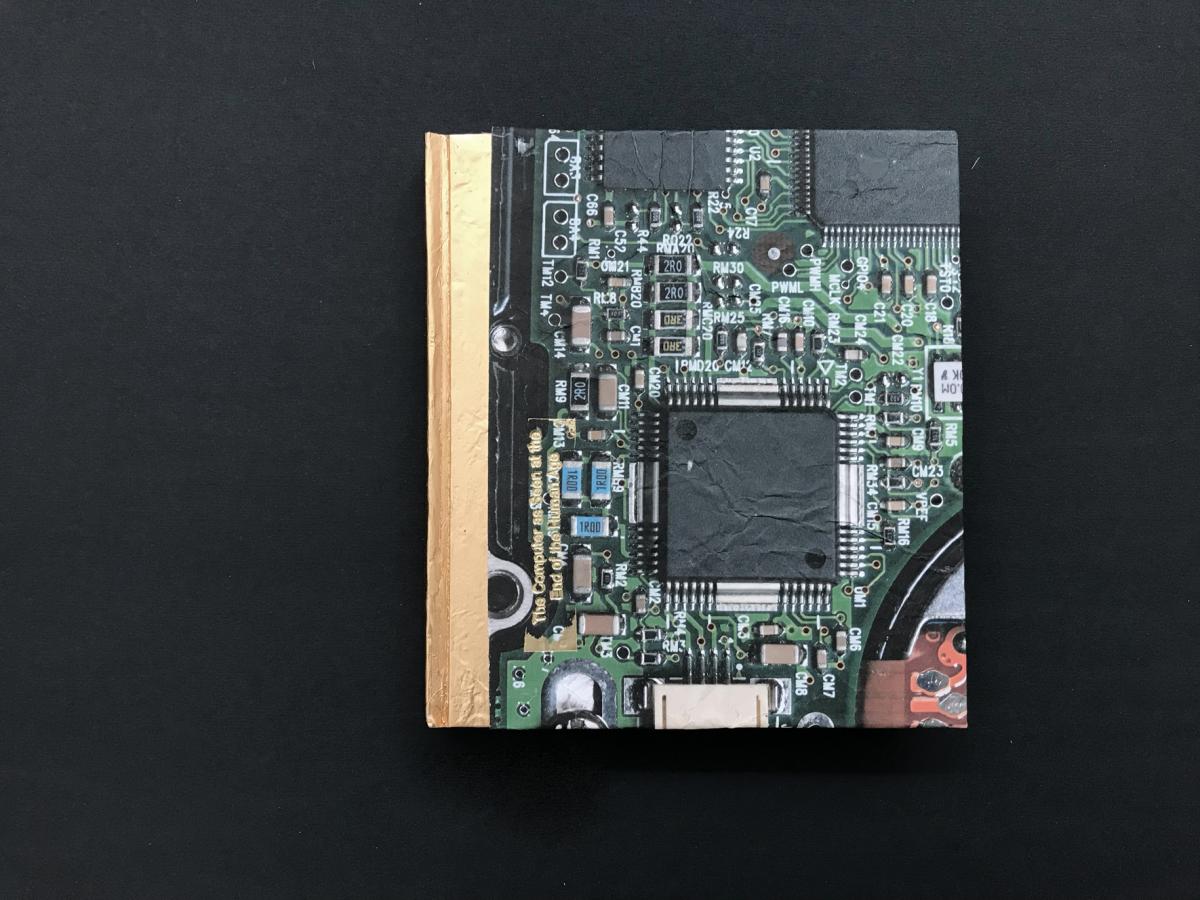
The title of the book, The Computer as Seen at the End of the Human Age, is a reference to the exhibition “The Machine as Seen at the End of the Mechanical Age”, curated by Pontus Hultén for MoMA in 1968, highlighting how technology was influencing art at a time when mechanical machines were increasingly replaced by electronic and chemical devices. Through its selection of contemporary art works the exhibition thus came to function as a recording of technological history.
I never got to see the exhibition since I wasn’t born at the time, but a couple of years ago I came across a curious book with a tin cover. The book was published in connection to the exhibition, and the history recorded between its covers ends at approximately the same time that early computers start to make their way into the art world. In the fifty years that followed, art came to be marked by a digital presence.
It was that book, along with an interest in dead media, and a curiosity for art aided by algorithms, that sparked the idea for The Computer as Seen at the End of the Human Age.
Here you will encounter new works by a selection of artists, specifically invited to use algorithms/AI to contribute to a continuous, self-reproducing, anachronistic, machine aided recording of history. A way to preserve, revise and/or comment upon digital history from the vantage point of present-day technology or through the lens of imagined future media, perspectives and technologies.
The works have been created specifically for the book. Some are based on works by other artists, made in another era, repurposed for our time and technologies. Others are based on redundant technologies, revived and given new functions. Some adopt a critical or political approach to the algorithm and its impact on society. Several utilize it as an opportunity to create unique works for each separate copy of the edition. Thousands of files eventually compiled into 200 unique books, each with a different cover and different contents – generated, aided or influenced by algorithms.
Olle Essvik
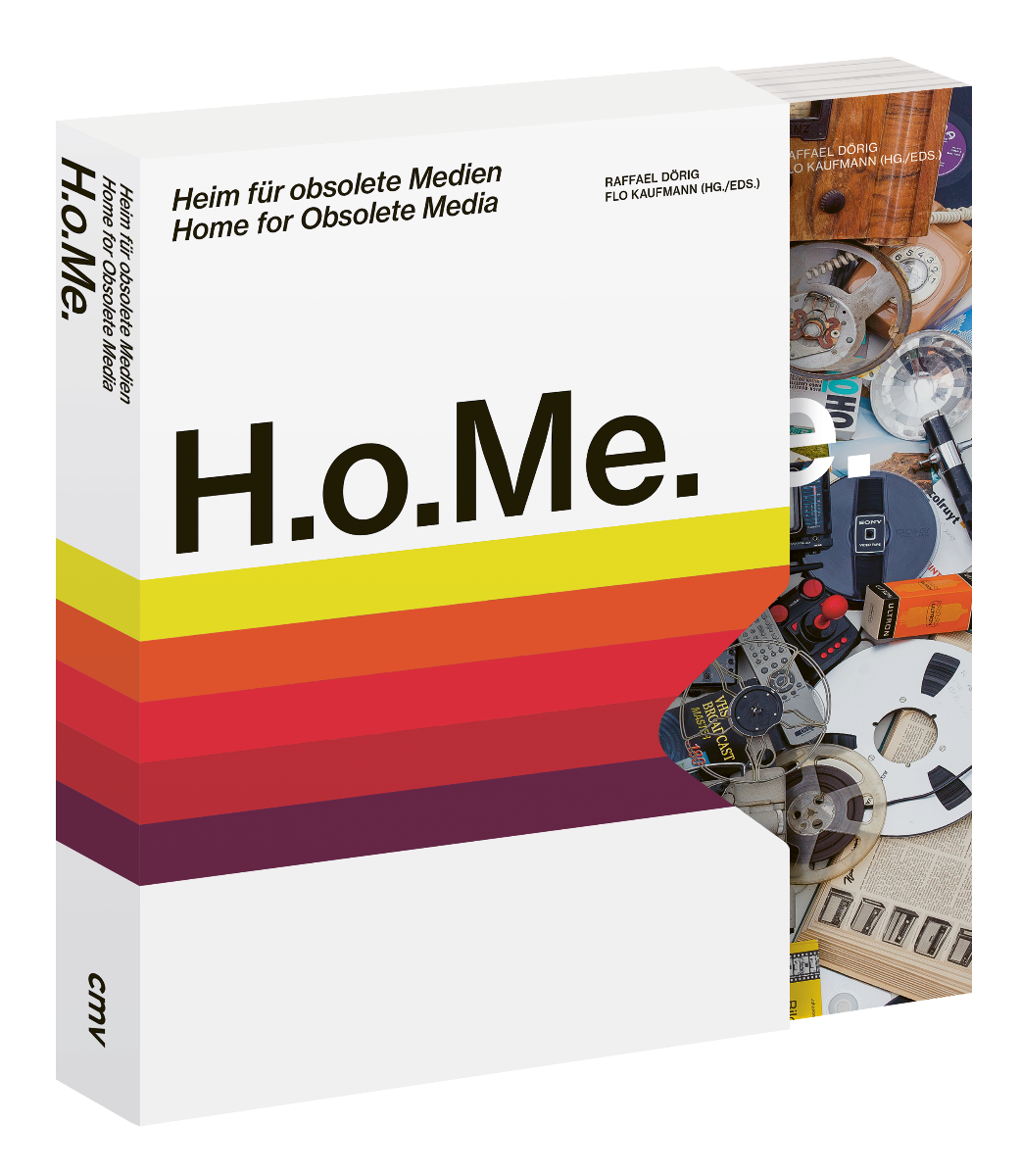
A journey of discovery to the scrap heap and he treasure trove of the analogue eraAudio tapes, records, audio cassettes and Super8 film – once they were all media standards. In the digital age however they have been superseded and are being discarded or else stored at the very back of the cellar. Artists and collectors however remain faithful to obsolete media and create something new out of old machines. Like the Swiss artist, musician and engineer Flo Kaufmann, who in the role of “Lord of the Groove” combines knowledge of vinyl mastering and experimental music.Starting with select objects, different obsolete media are introduced in a technological and culture historical context. Works by Kaufmann and other artists and musicians, like Christian Marclay, !Mediengruppe Bitnik and many more, demonstrate the potential inherent in working with analogue finds and give concrete tips to inspire us to do-it-ourselves.
Raffael Dörig, Flo Kaufmann
978-3-85616-949-7
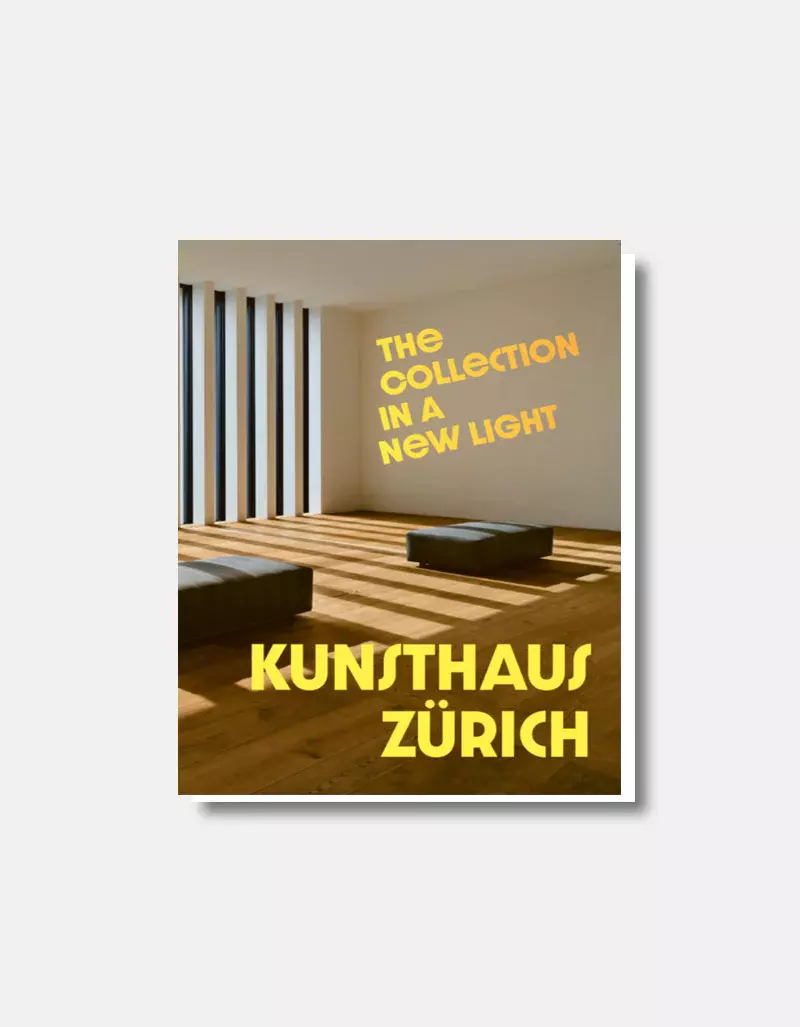
In October 2021, David Chipperfield’s new extension of the Kunsthaus Zürich opened for the public. The new wing doubles the museum’s space for art display. Perhaps more importantly, it offers the opportunity to present larger parts of the museum’s permanent collection in a new light and in new groupings. The Chipperfield building is now home to the renowned Merzbacher, Hubert Looser, and Emil Bührle Collections, all on permanent loan to the museum. The formidable selection of French impressionist paintings in the Emil Bührle Collection combined with Kunsthaus Zürich’s own holdings of that period constitutes the largest display of impressionist art outside France. In addition, surrealism, art from the postwar period, pop art, and contemporary art now have the prominent space they deserve.
This new book offers an introduction to the museum’s curatorial concept as well as concise essays on key aspects of Kunsthaus Zürich’s permanent collection.
978-3 03942-059 9
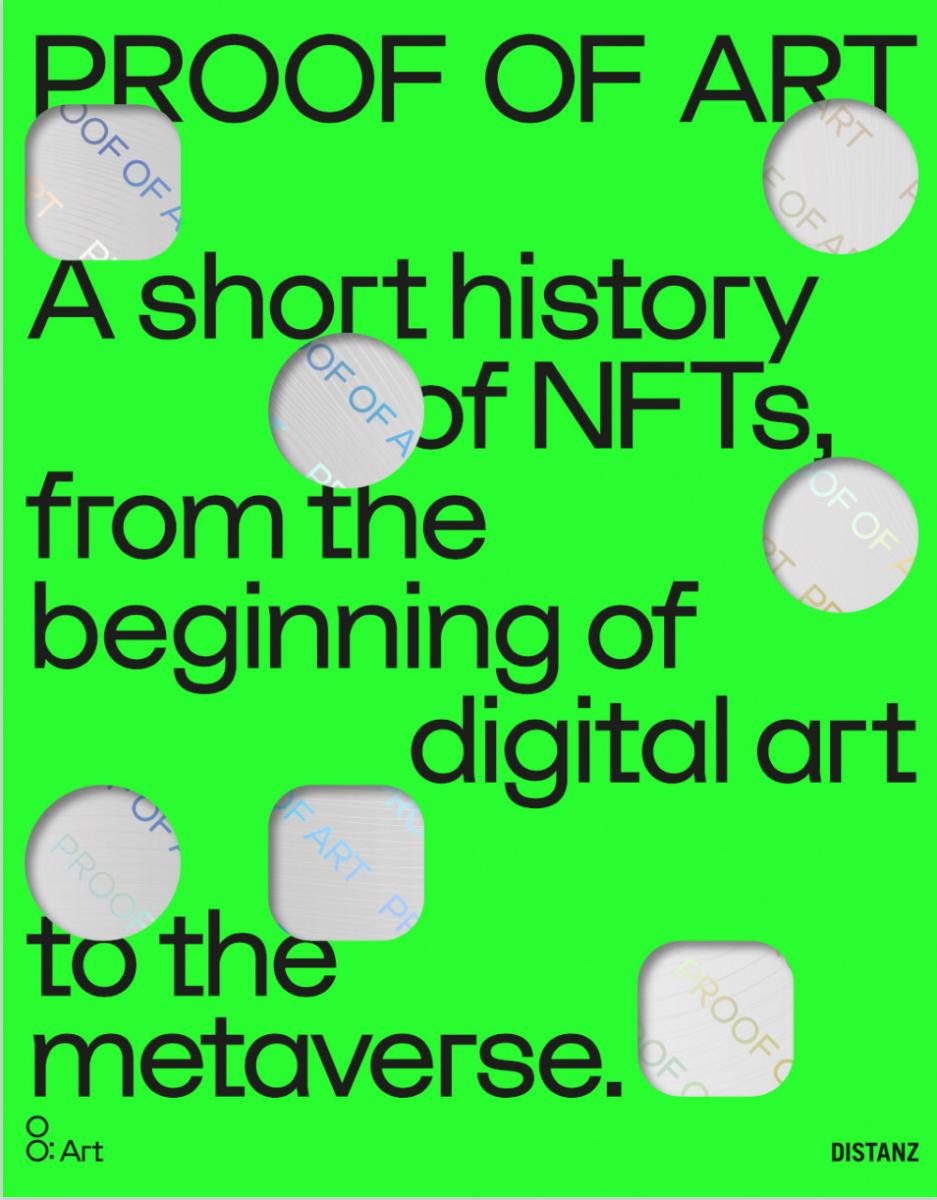
A meteoric hype? Or avant-garde? At its Francisco Carolinum venue in Linz, OÖ Landes-Kultur presents PROOF OF ART, the world’s first museum exhibition on the history of NFTs (non-fungible tokens) and digital art. The project surveys the origins of NFTs and their evolution, from formative early trial runs with digital technologies to the first artistic experiments with the blockchain and today’s cutting-edge crypto-art. Online and offline, the multimedia exhibition and the related publication each present the positions of twenty-six artists who grapple with the new system of meanings and values, examine the role that artists play in our high-tech environment, and discuss the repercussions of virtual spaces in the reality of our lives.
Released in conjunction with the exhibition, the publication is designed less as an accompanying catalogue than as a handbook that sheds light on NFTs in their (art-)historical contexts, from the media art of the 1950s/60s to contemporary positions. Experts in a range of disciplines contributed essays: Daniel Heiss and Margit Rosen, Fabian Müller-Nittel, Georg Bak, Anika Meier, Schoenherr Attorneys at Law, Charlotte Kent, and Claudia Hart. With a preface by Alfred Weidinger and an intro by Jesse Damiani.
Alfred Weidinger, OÖ Landes-Kultur GmbH
978-3-95476-439-6
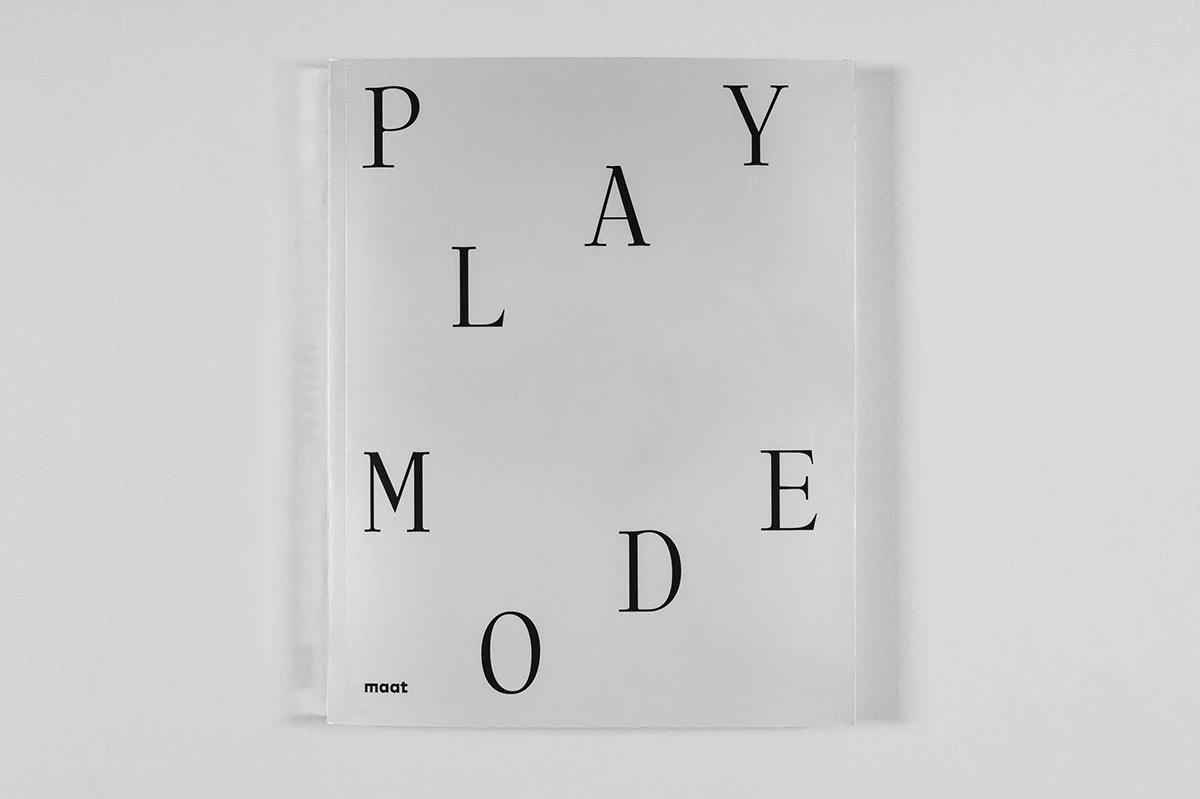
Early on, the artists understood the transformative power of play, integrating it into their works for various purposes – escaping reality, social construction and transformation, subversion or as a criticism of the mechanisms of play and games themselves. The Playmode exhibition and catalogue offer a reflection on these aspects and on the era of ludification that contemporary societies are now experiencing, bringing together pieces by several artists, such as Brad Downey, Gabriel Orozco and Ana Vieira, who incorporate the theme while exploring new ways of seeing, participating and transforming the world, using gaming in a critical way.
Fundação EDP
978-972-8909-87-1
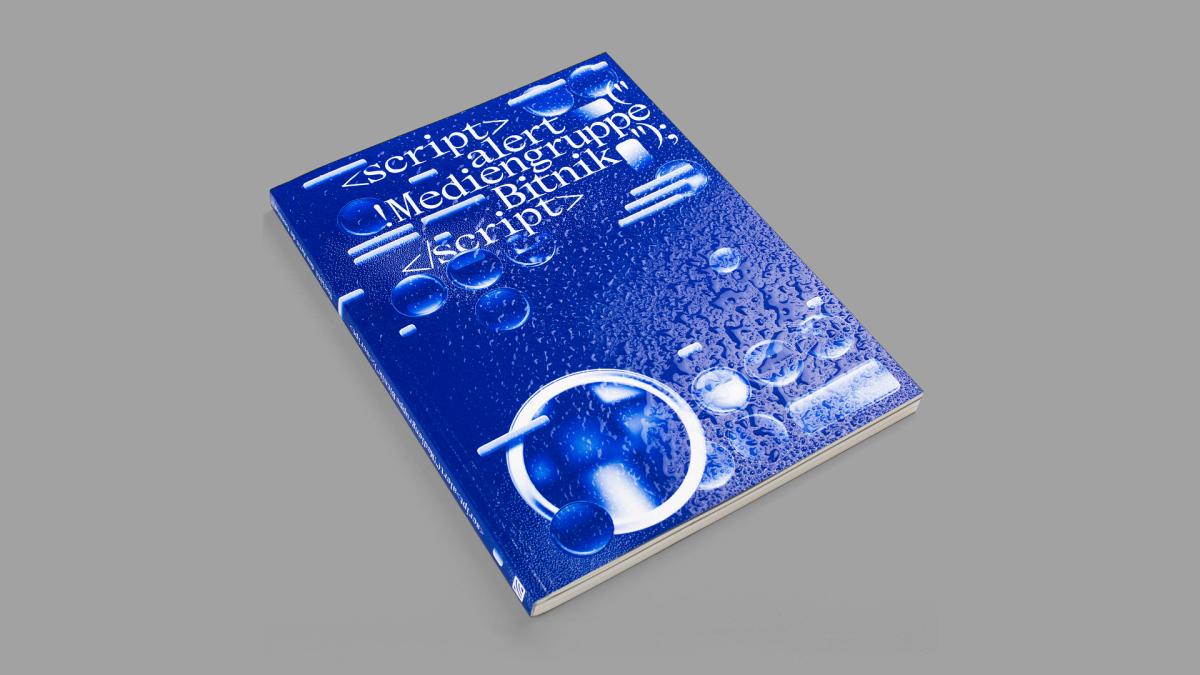
!Mediengruppe Bitnik’s first monography injects code on online bookstores through its title: a line of Javascript that displays an alert popup.
Société des Arts de Genève, Felicity Lunn
978-3903153509
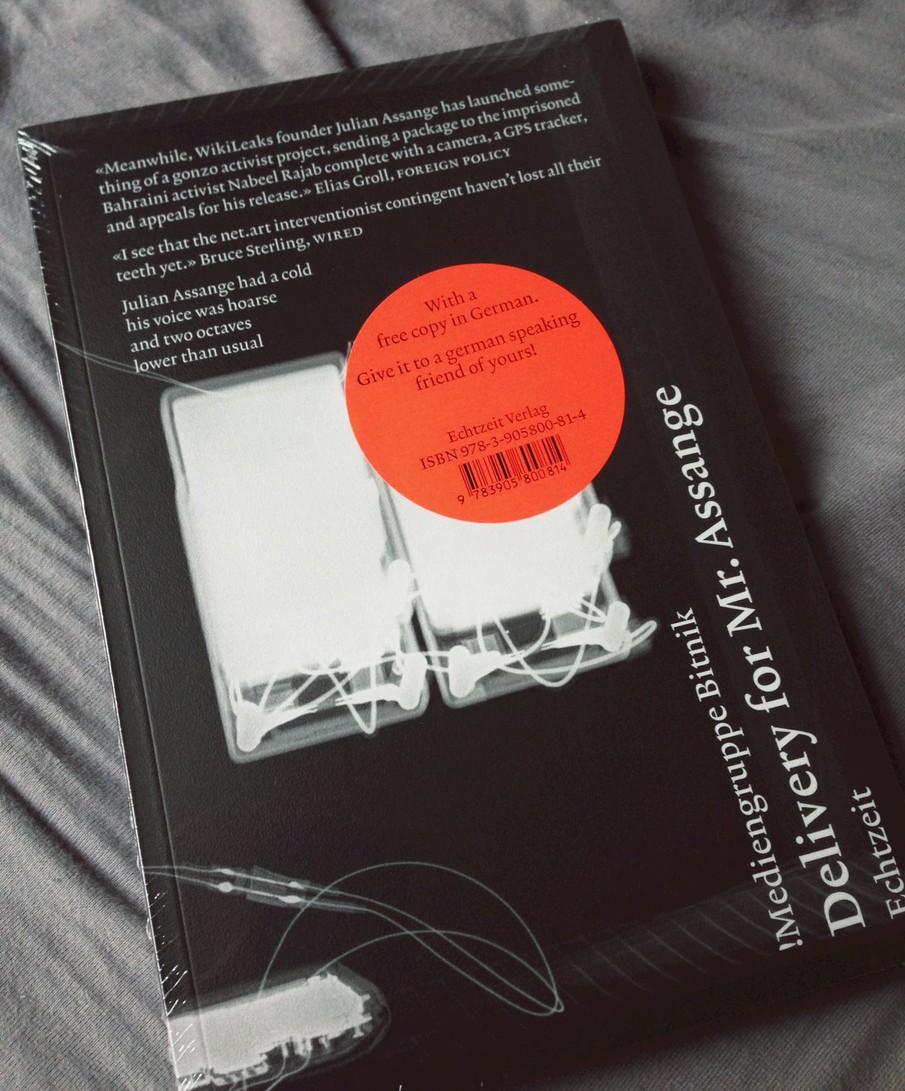
On 16 January 2013, !Mediengruppe Bitnik sent a parcel containing a camera and a GPS signal to Julian Assange, the founder of WikiLeaks, to find out what would happen on the way. Would it be possible to break through the physical barrier surrounding Assange, who is living at the Ecuadorian Embassy in London to escape being extradited to the USA? Would the parcel’s journey end with a picture of Assange’s face or would it be intercepted and destroyed by an intelligence officer of the British Secret Service?
This is the account of an extraordinary delivery and the uproar that followed on the Internet. The publication consists of two books, one in English, one in German – read in your prefered language and give the other copy away!
2016.bitnik.org/book
!Mediengruppe Bitnik
978-3-905800-81-4